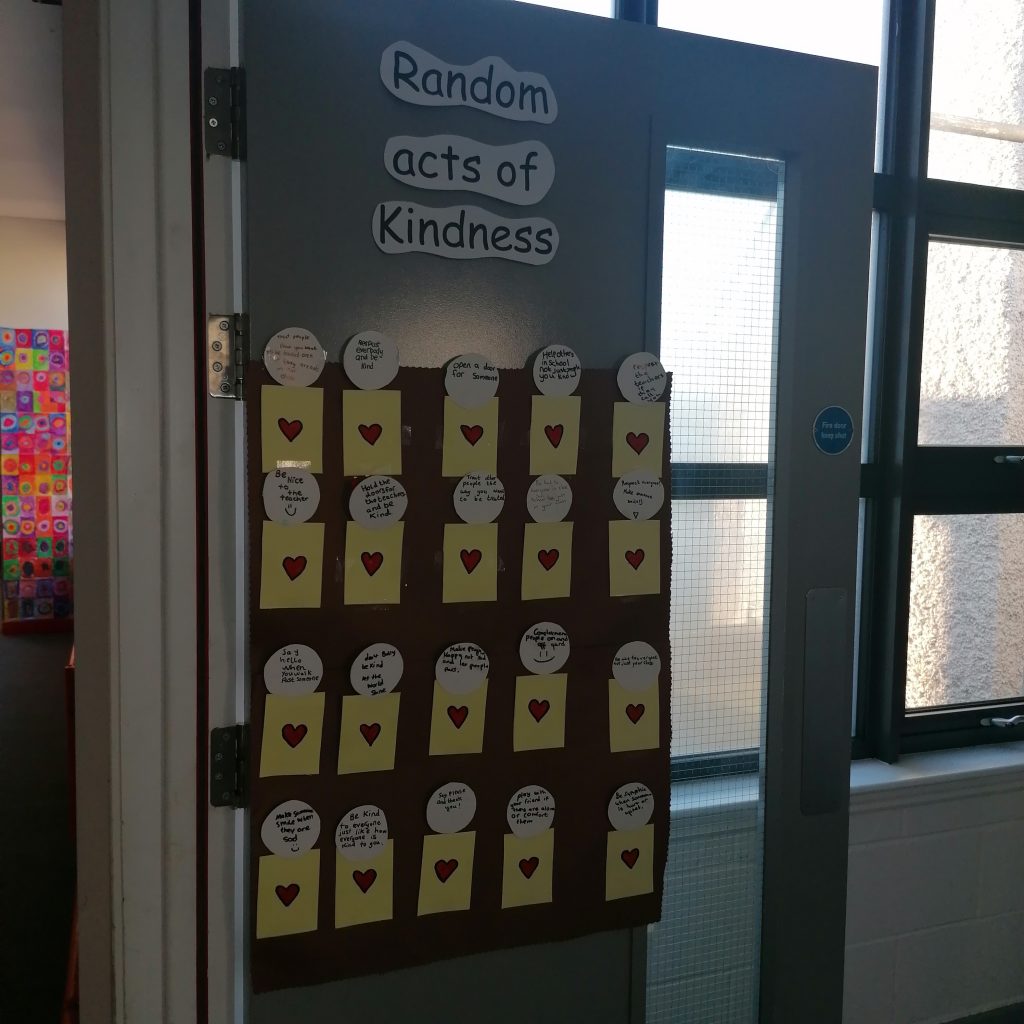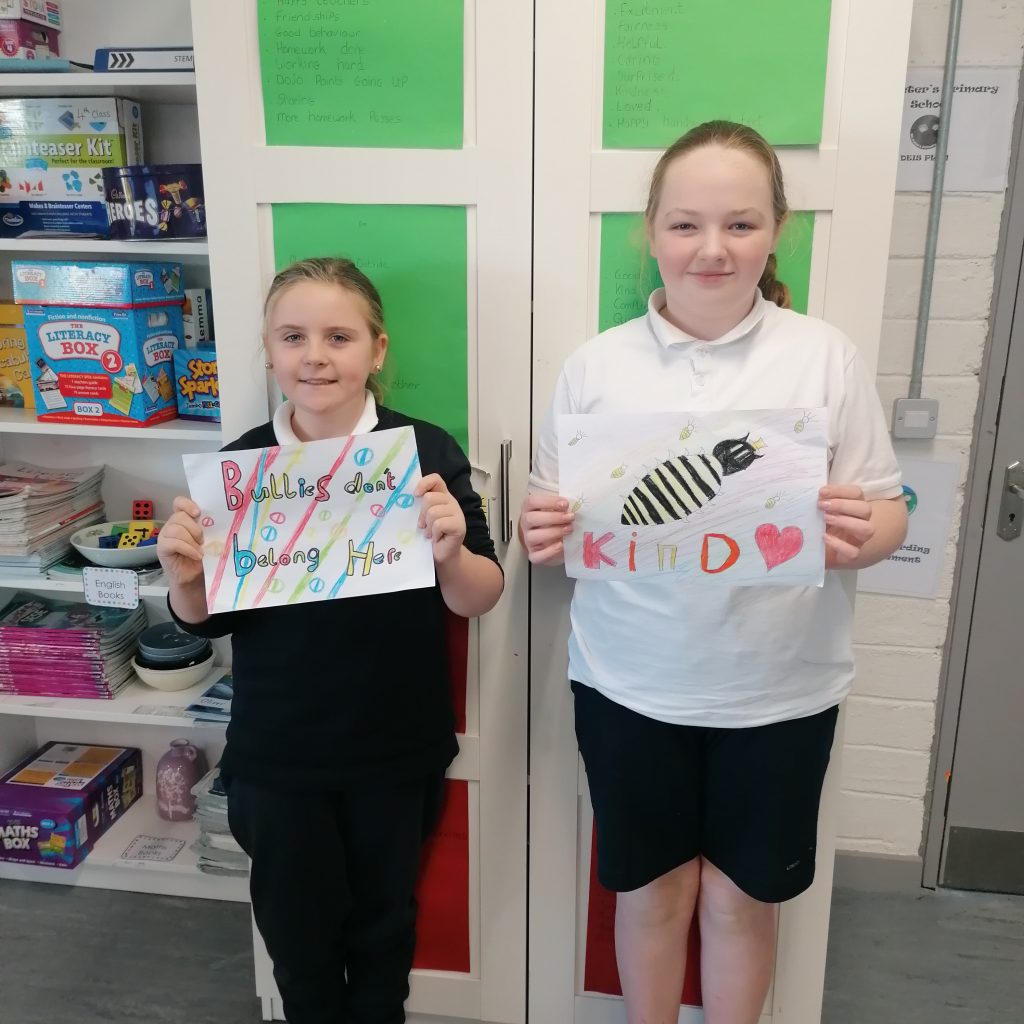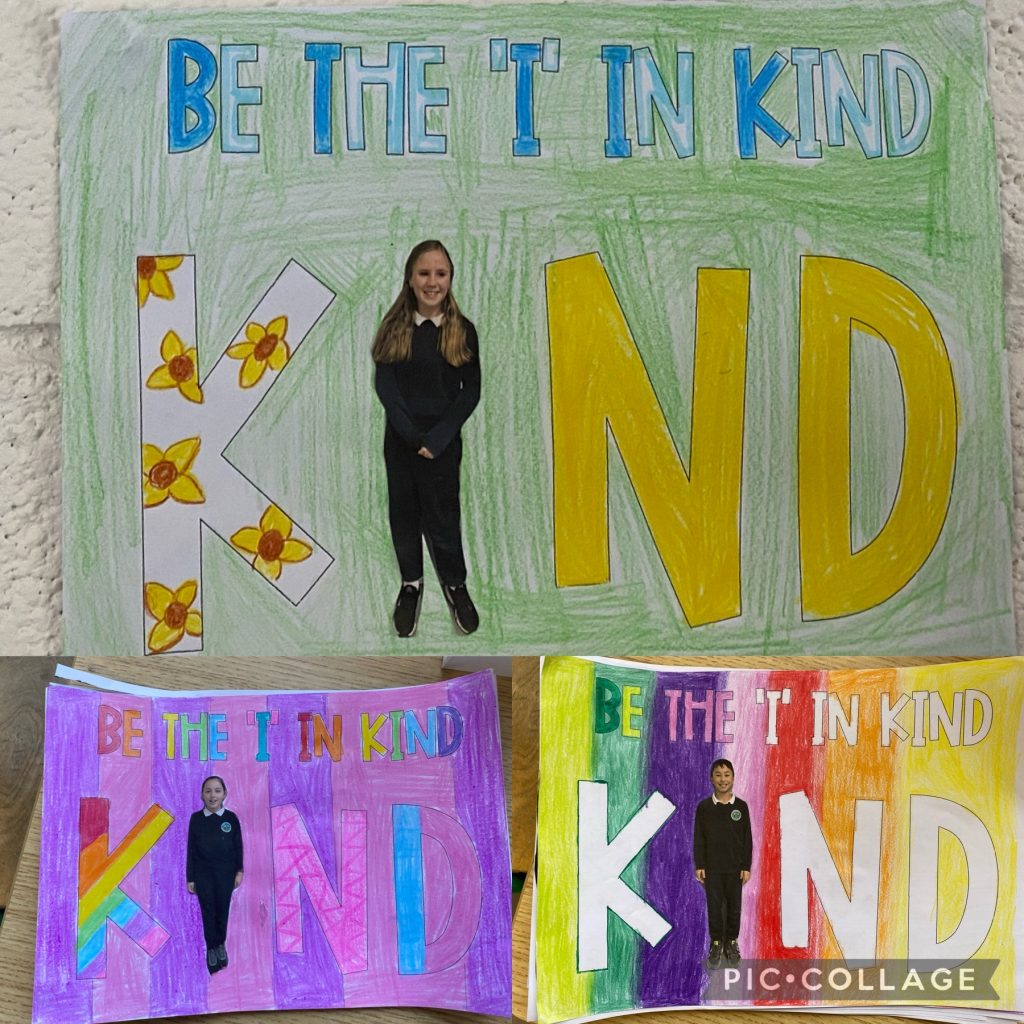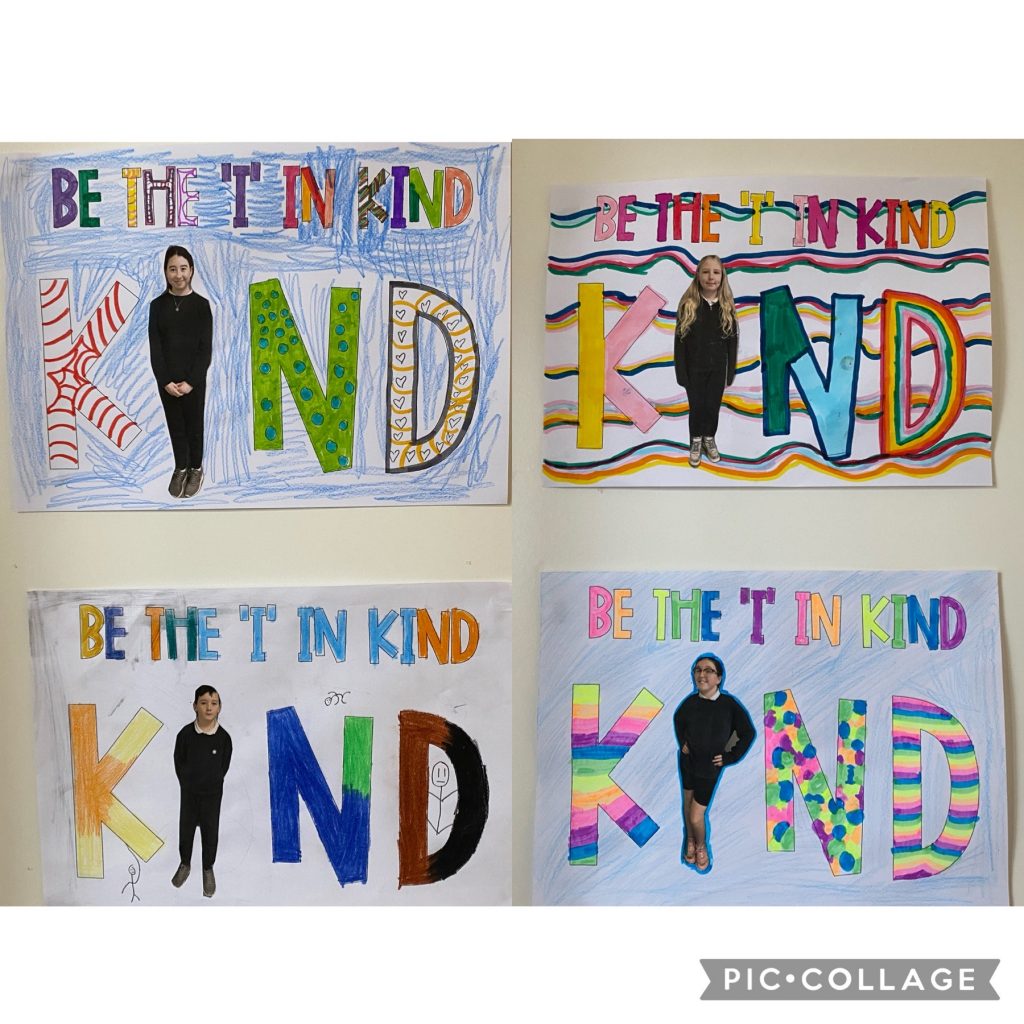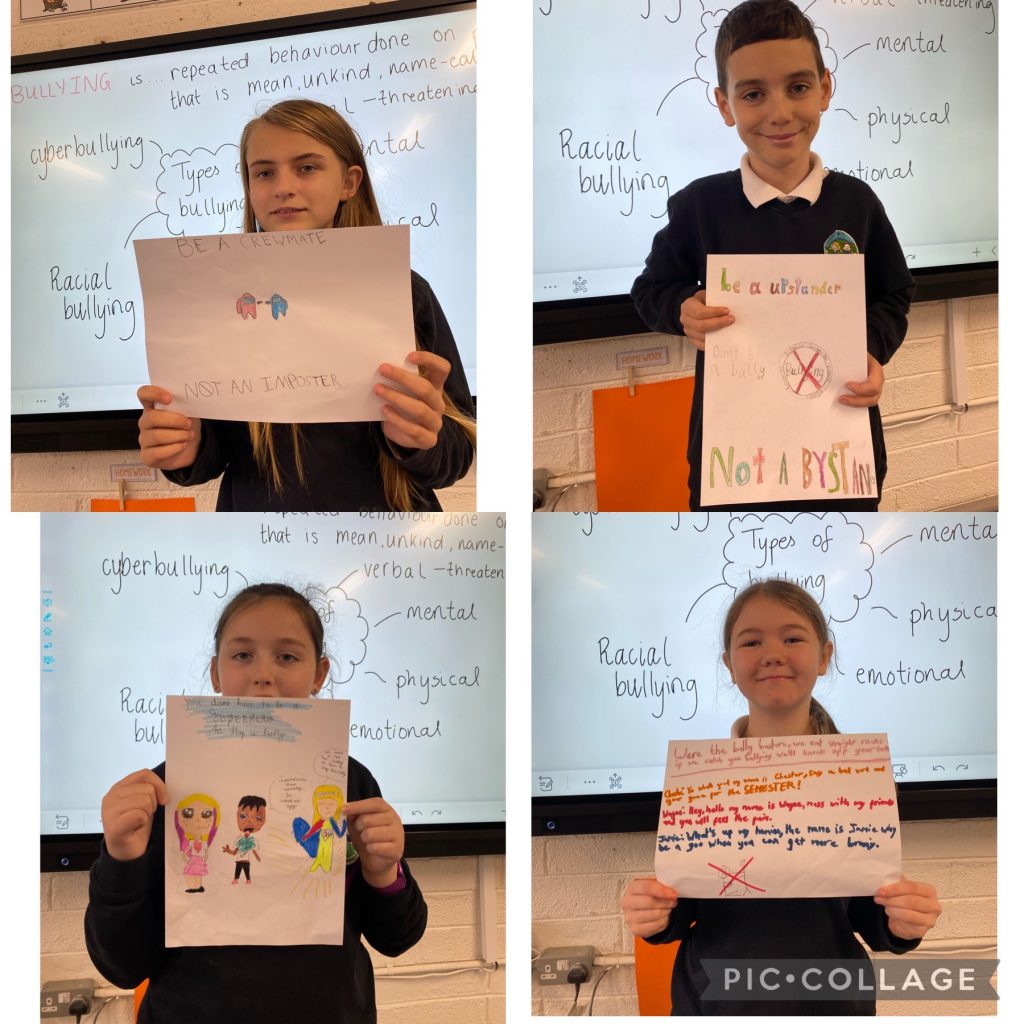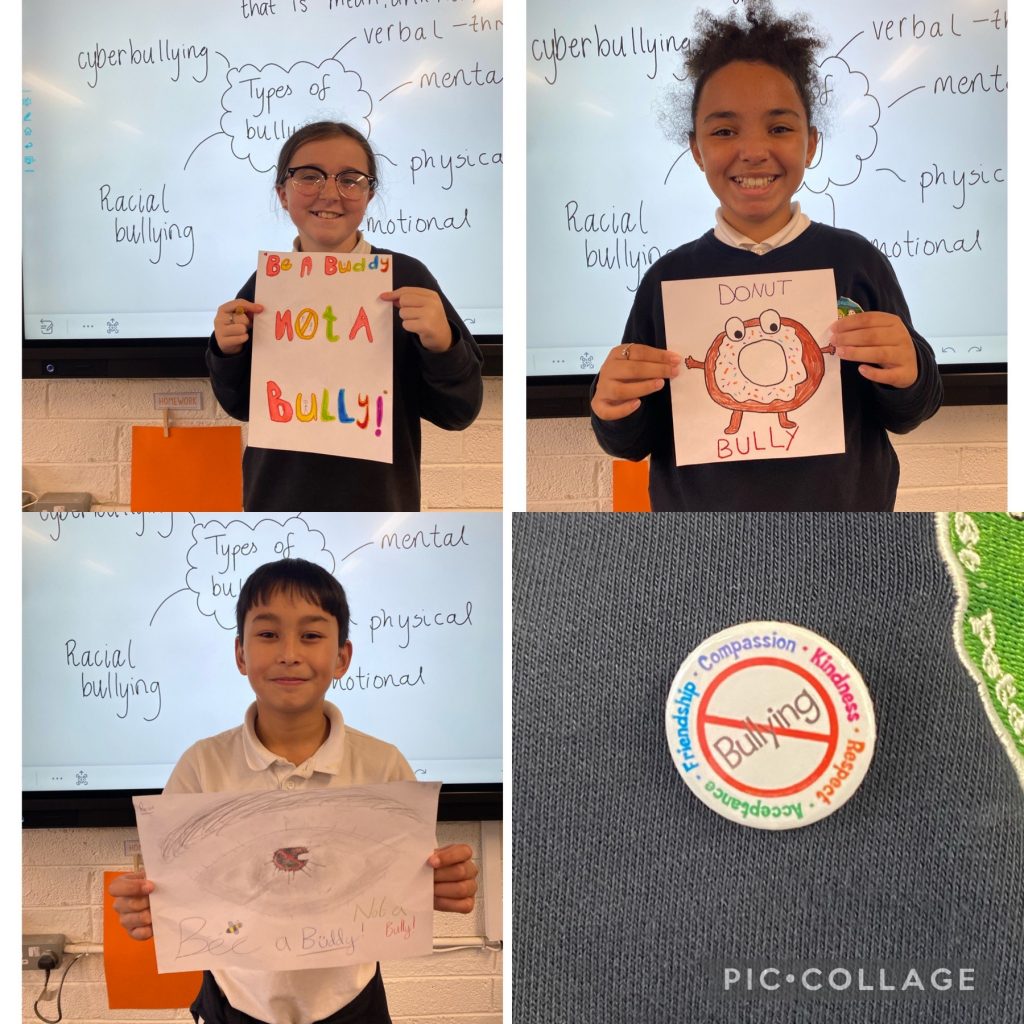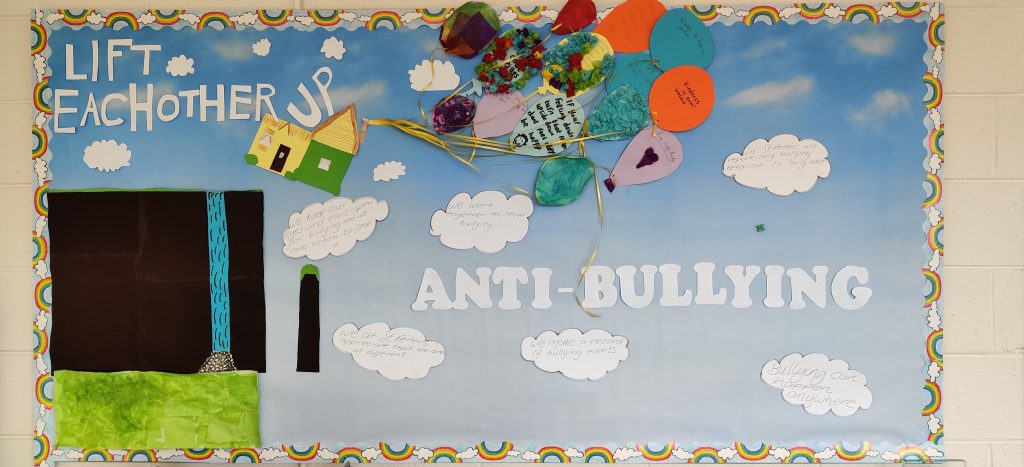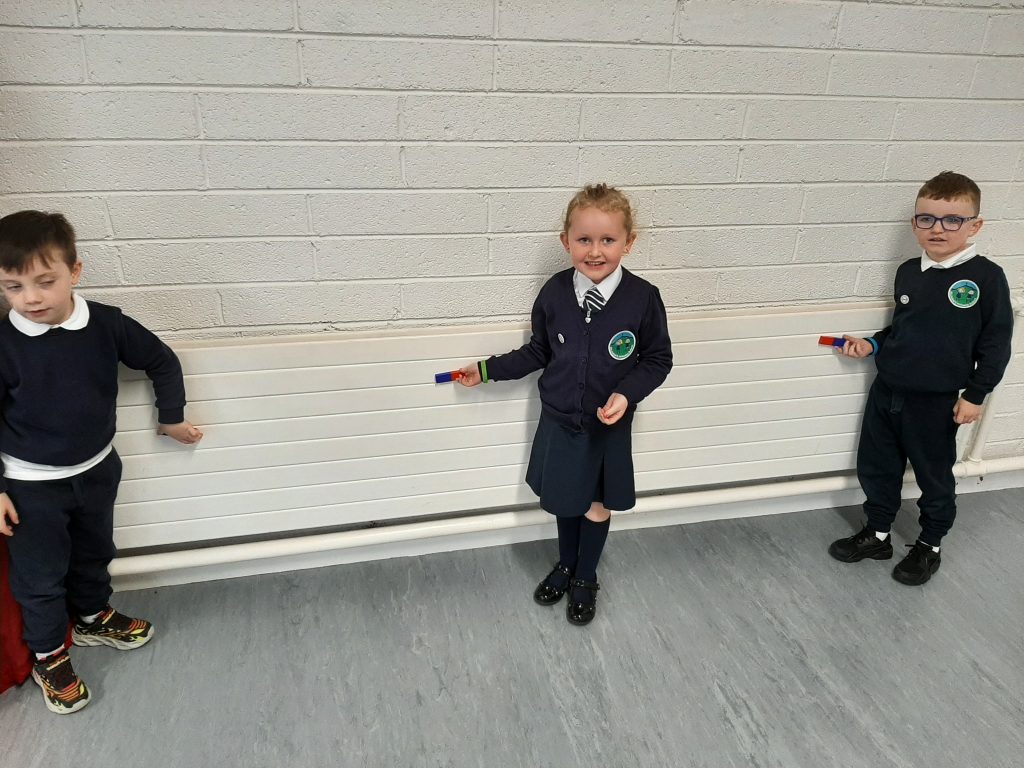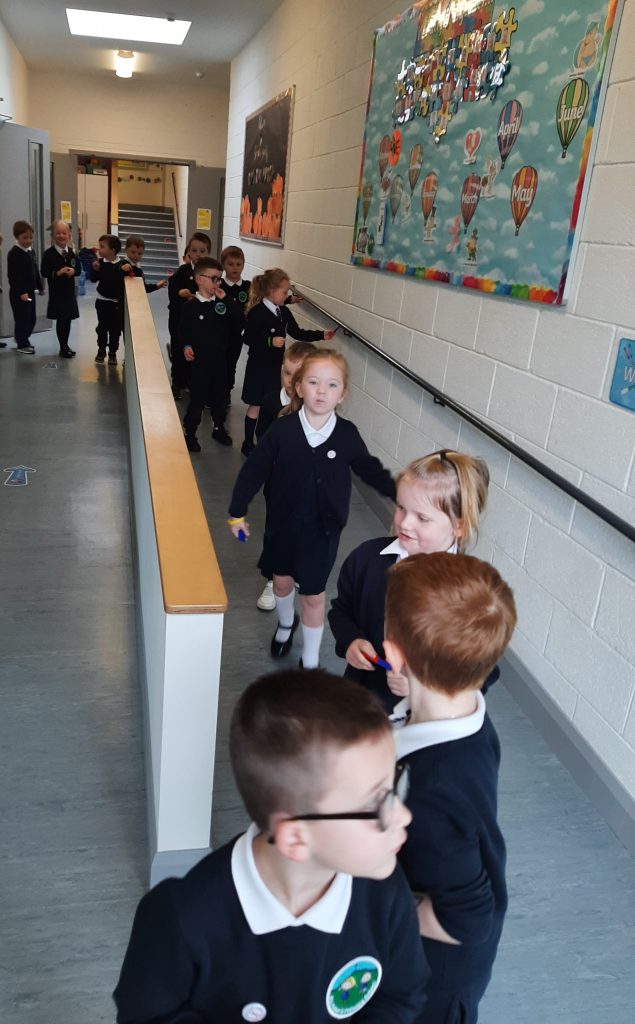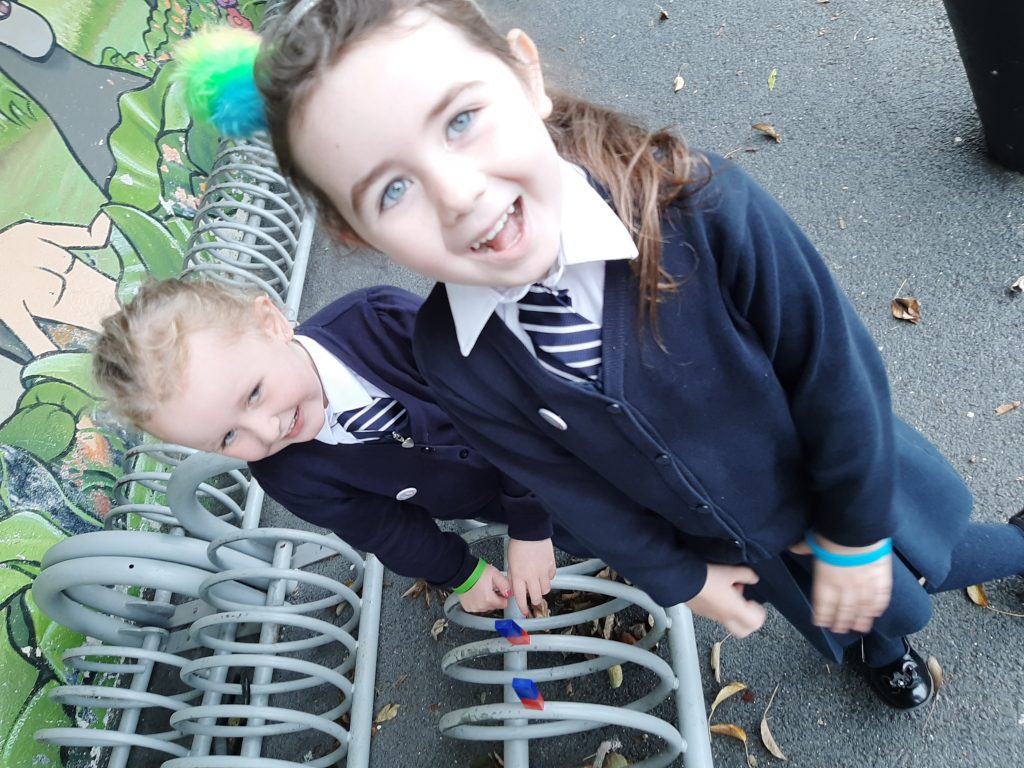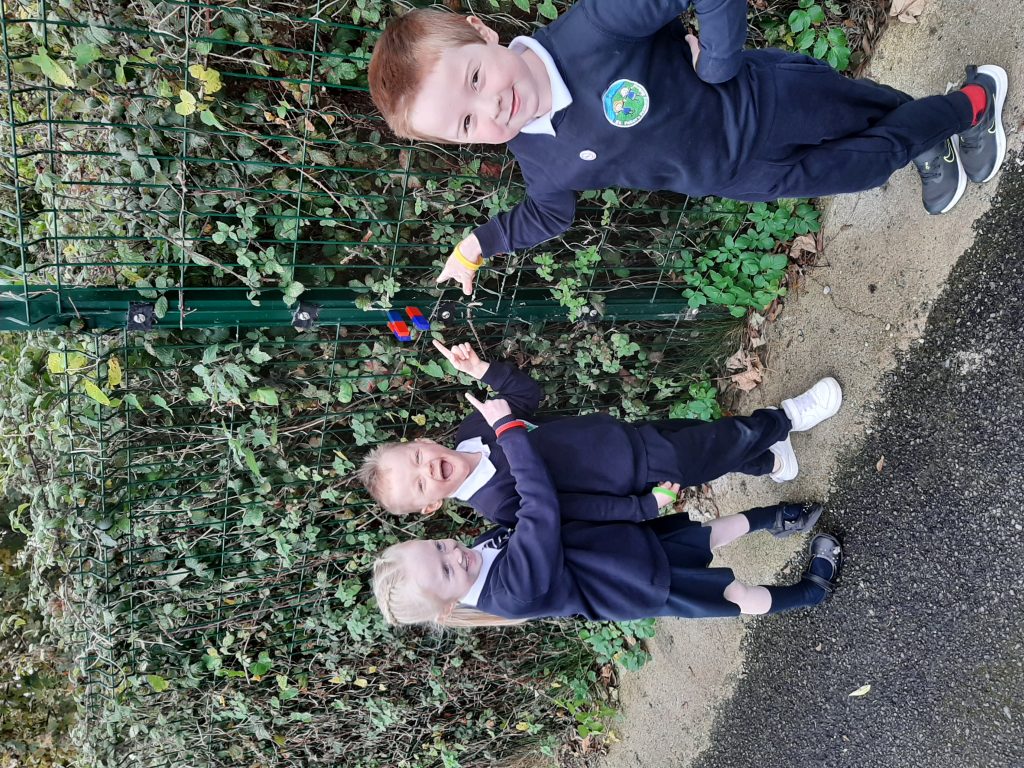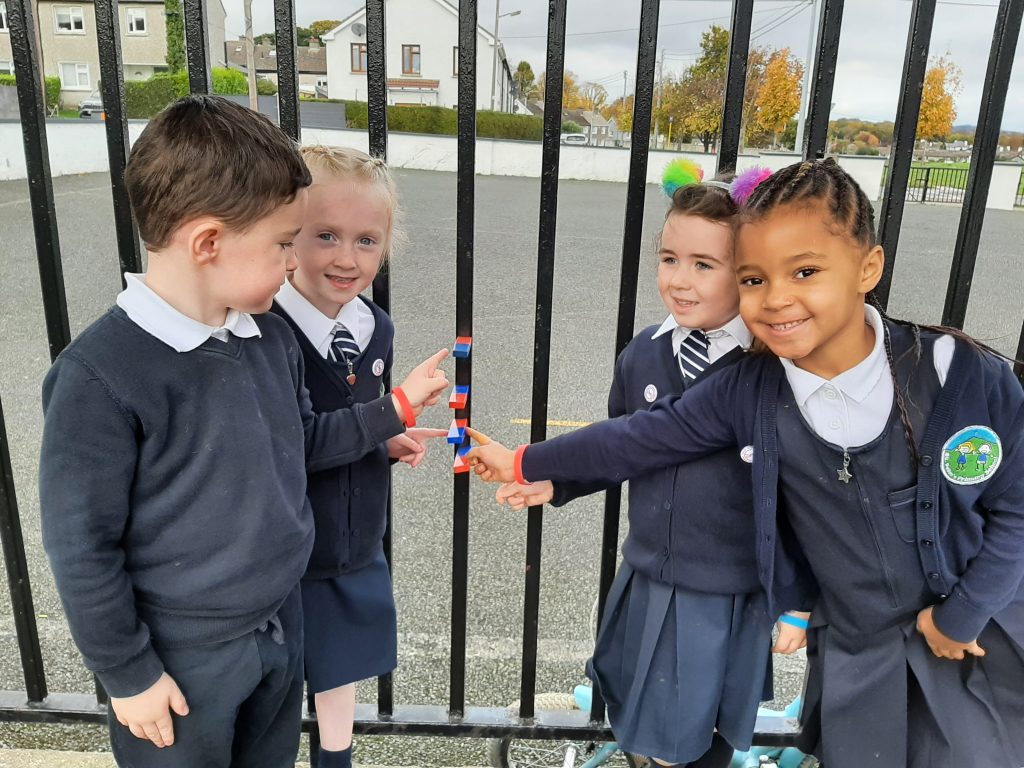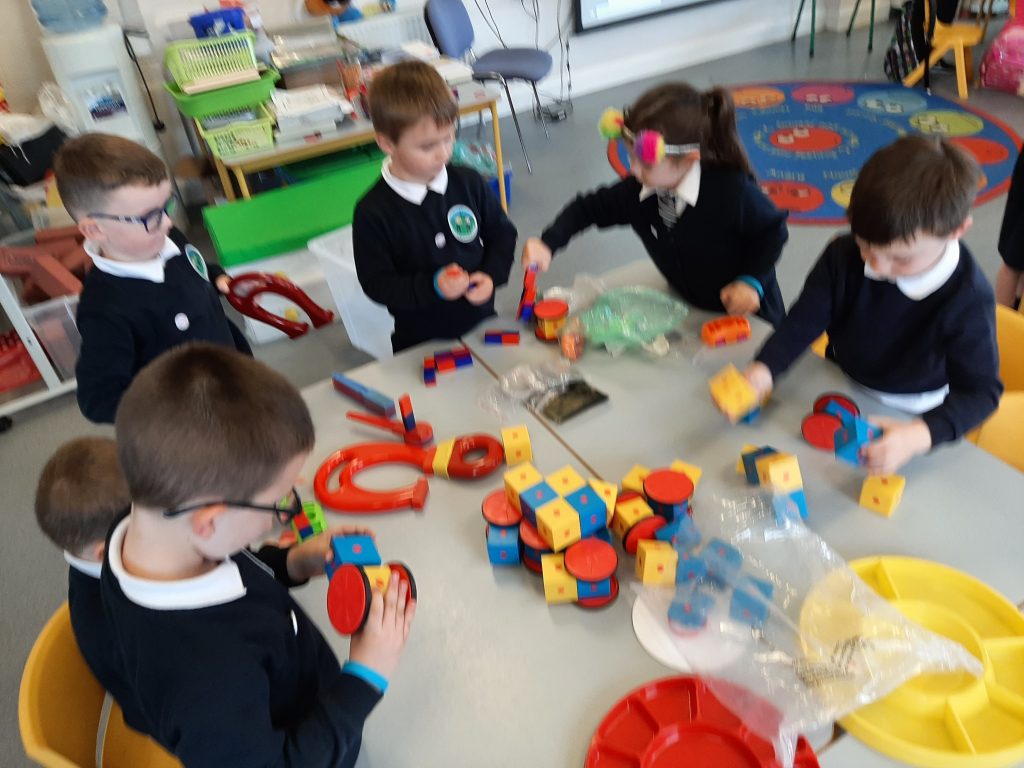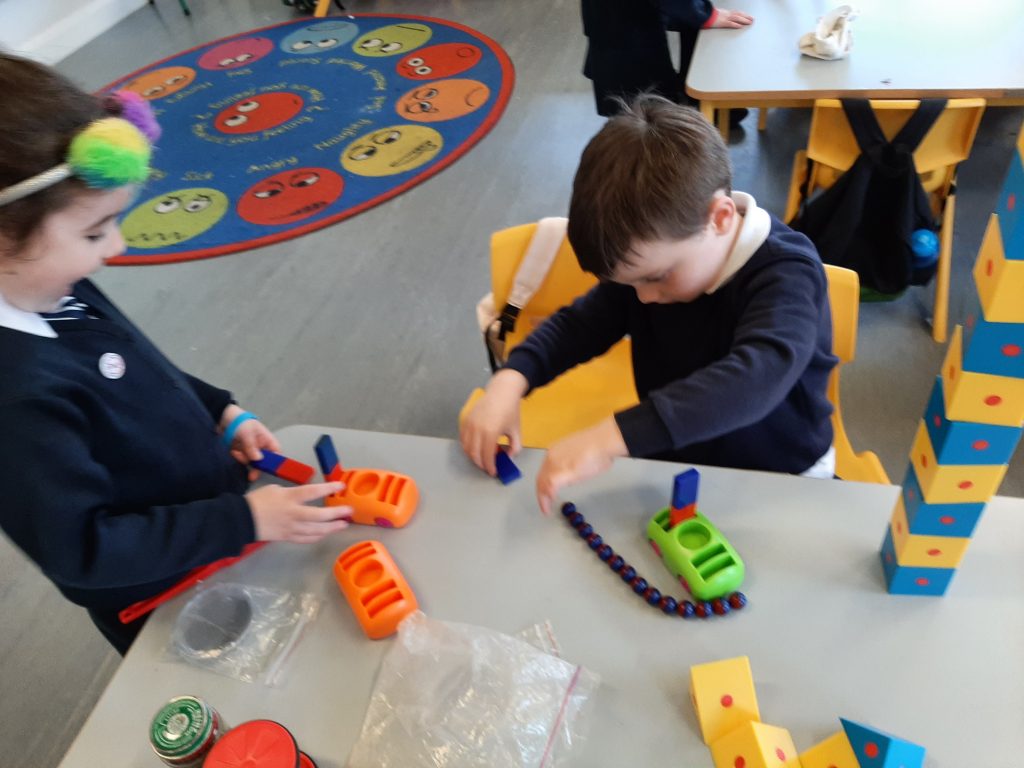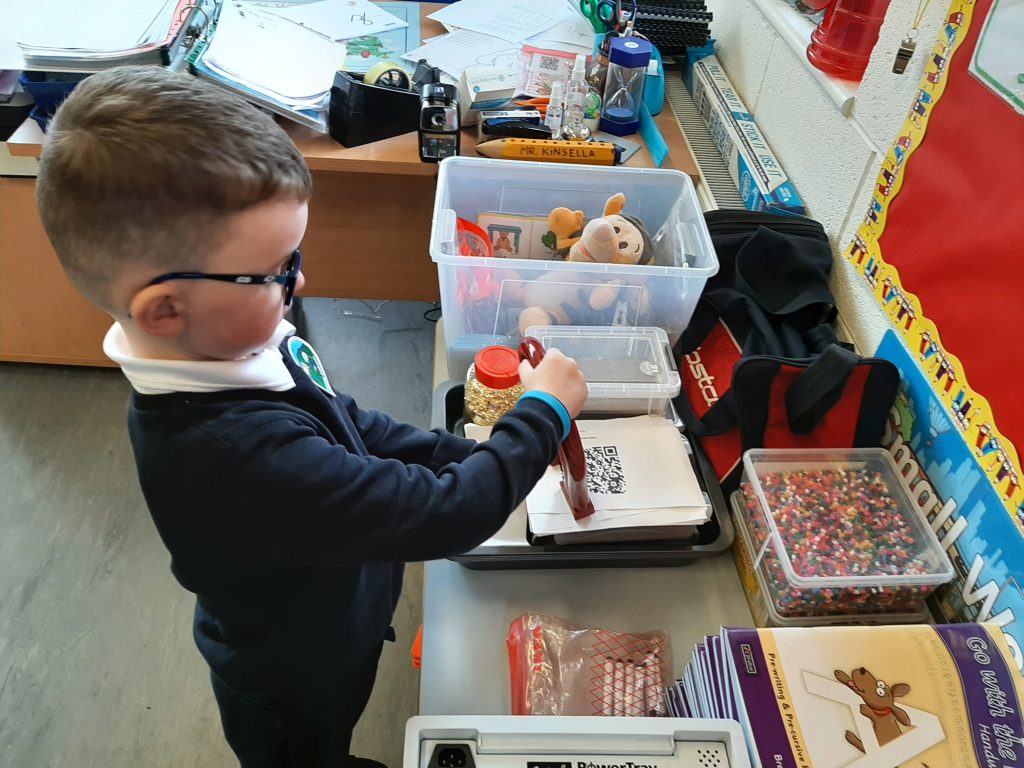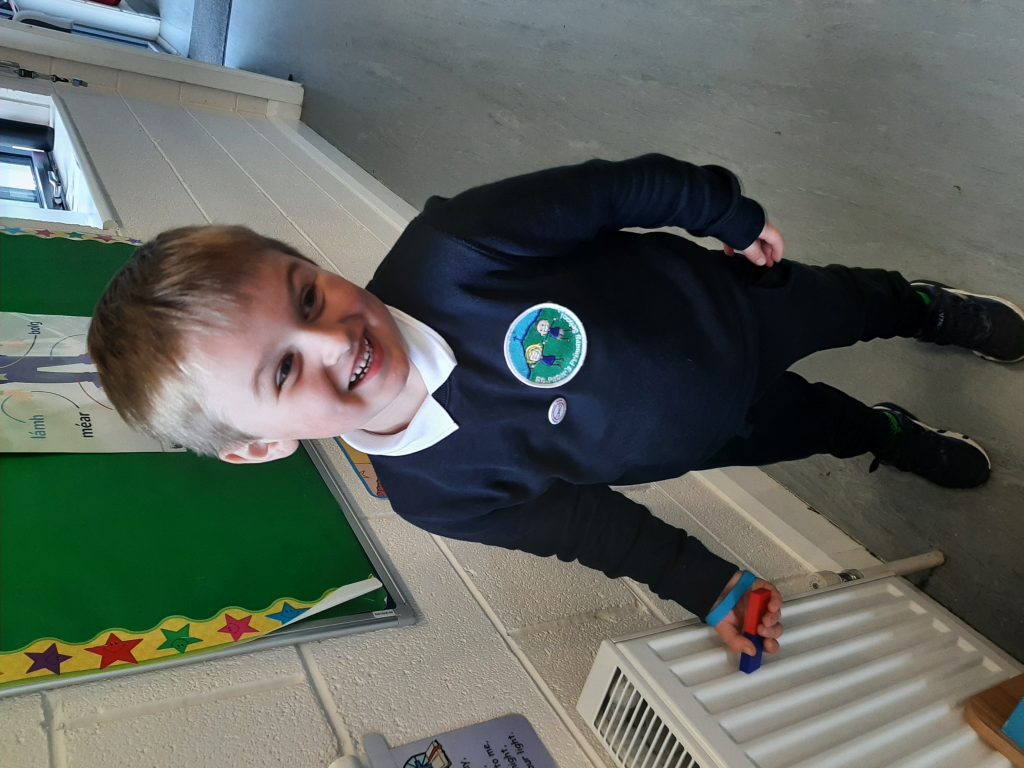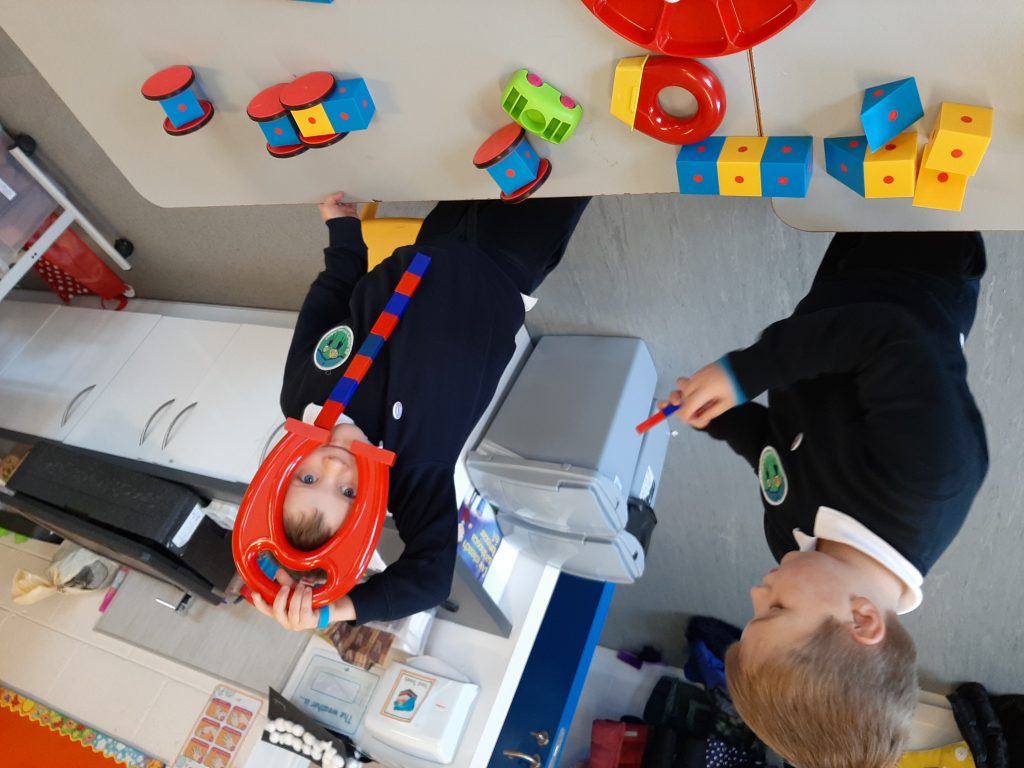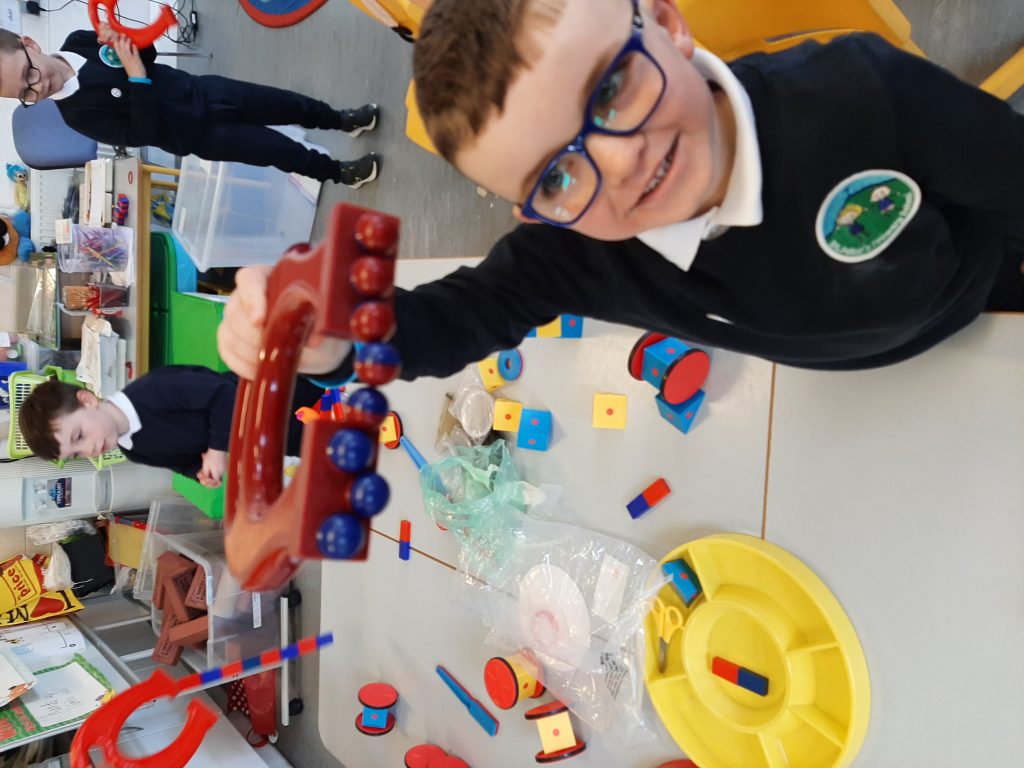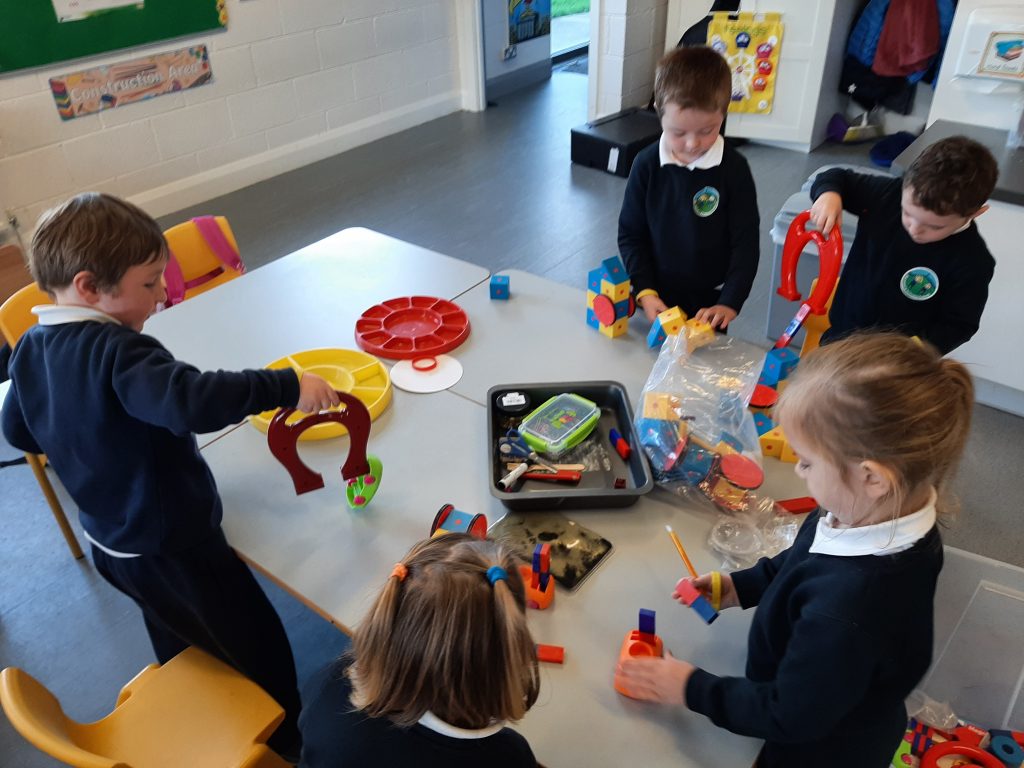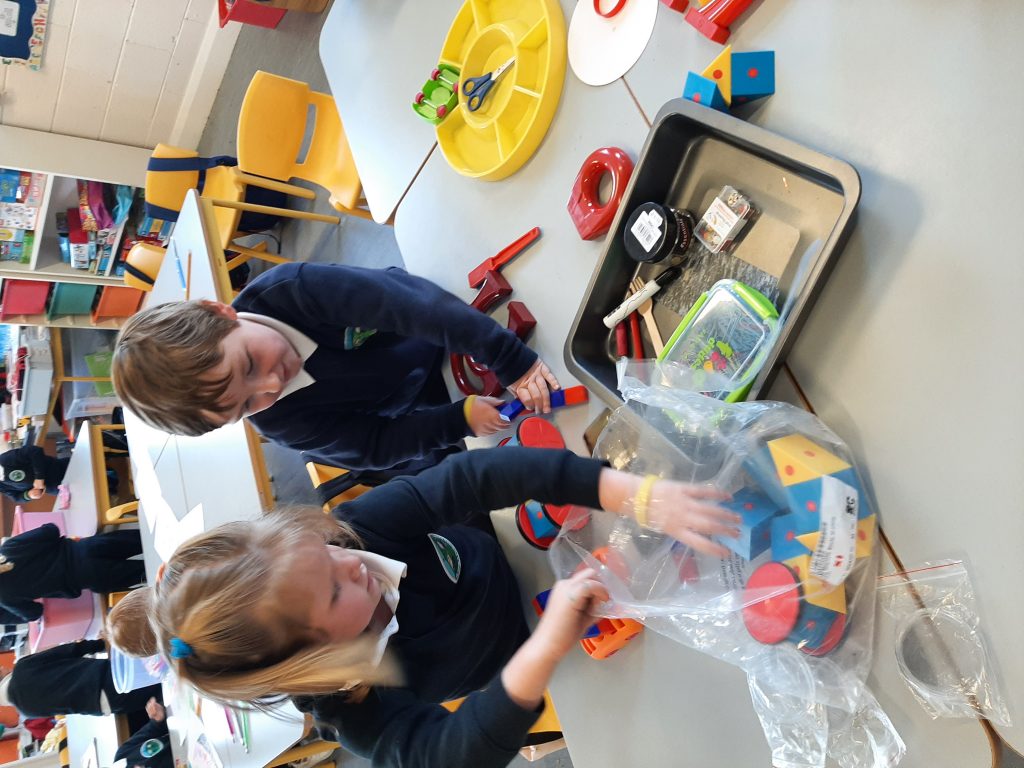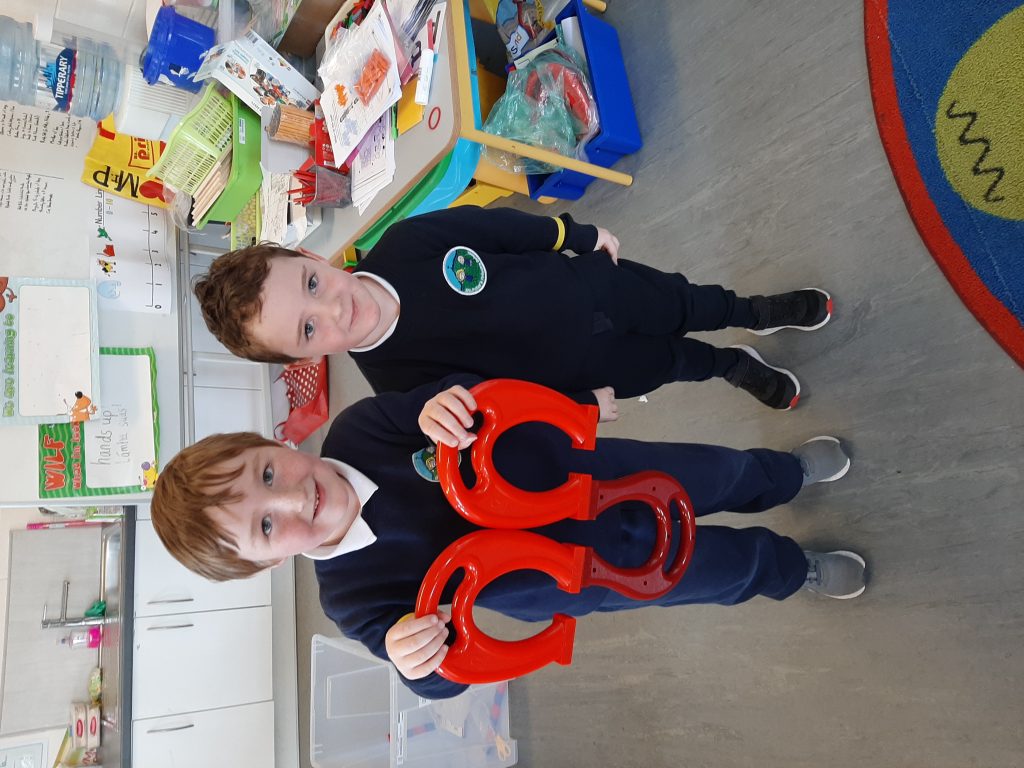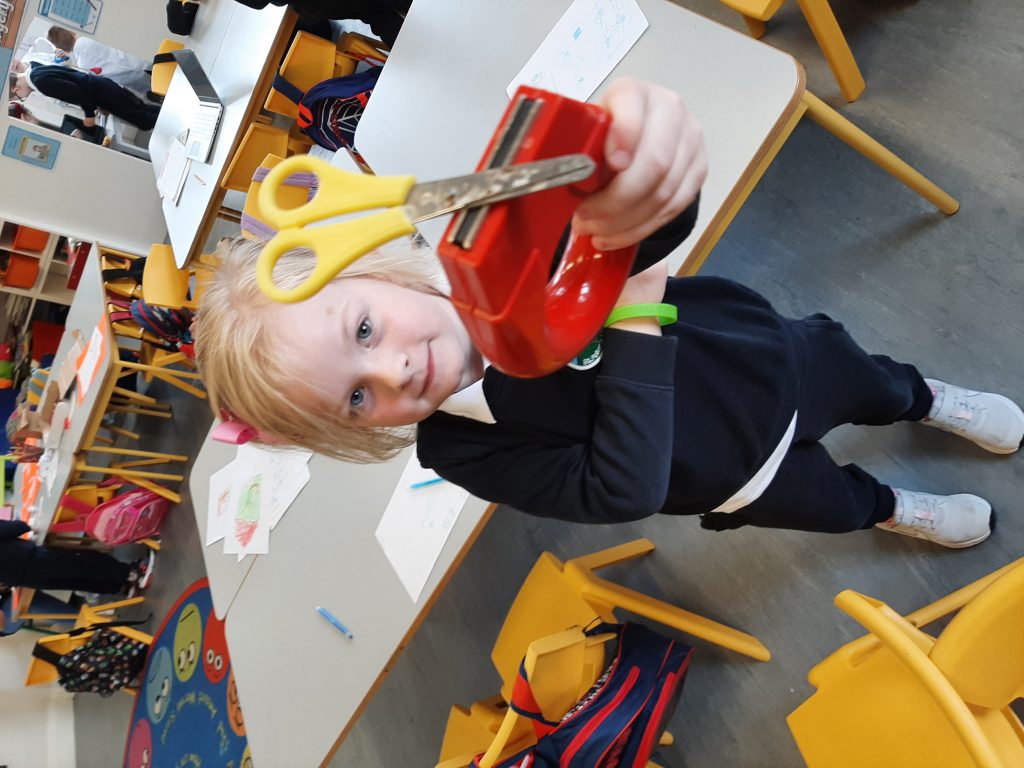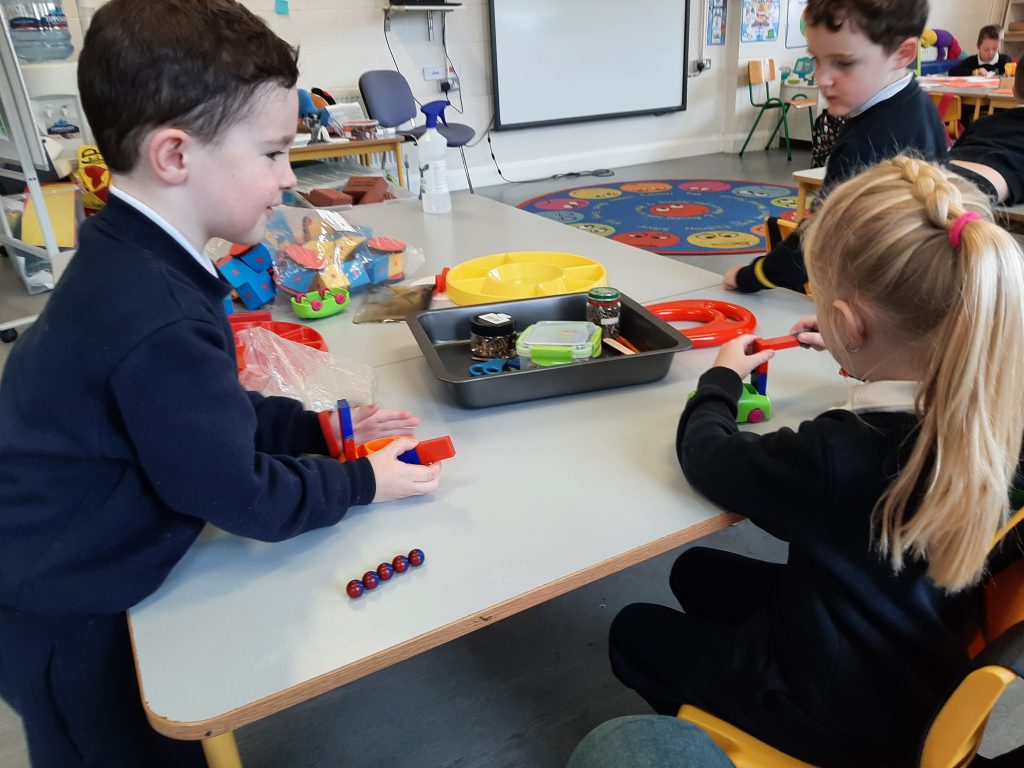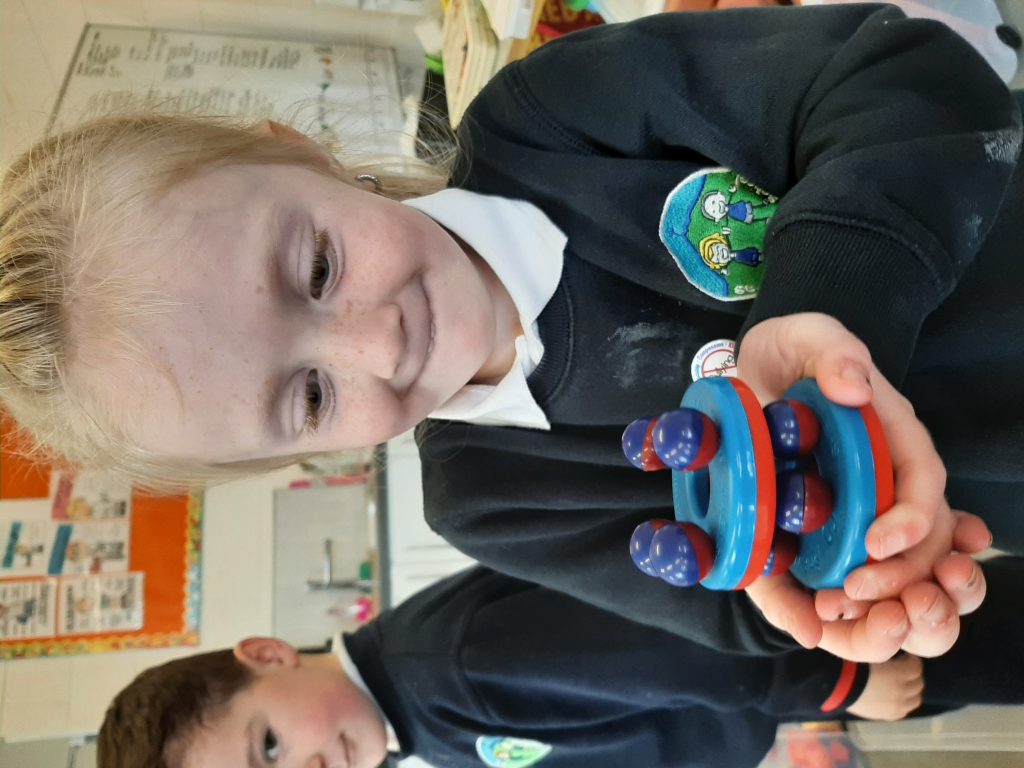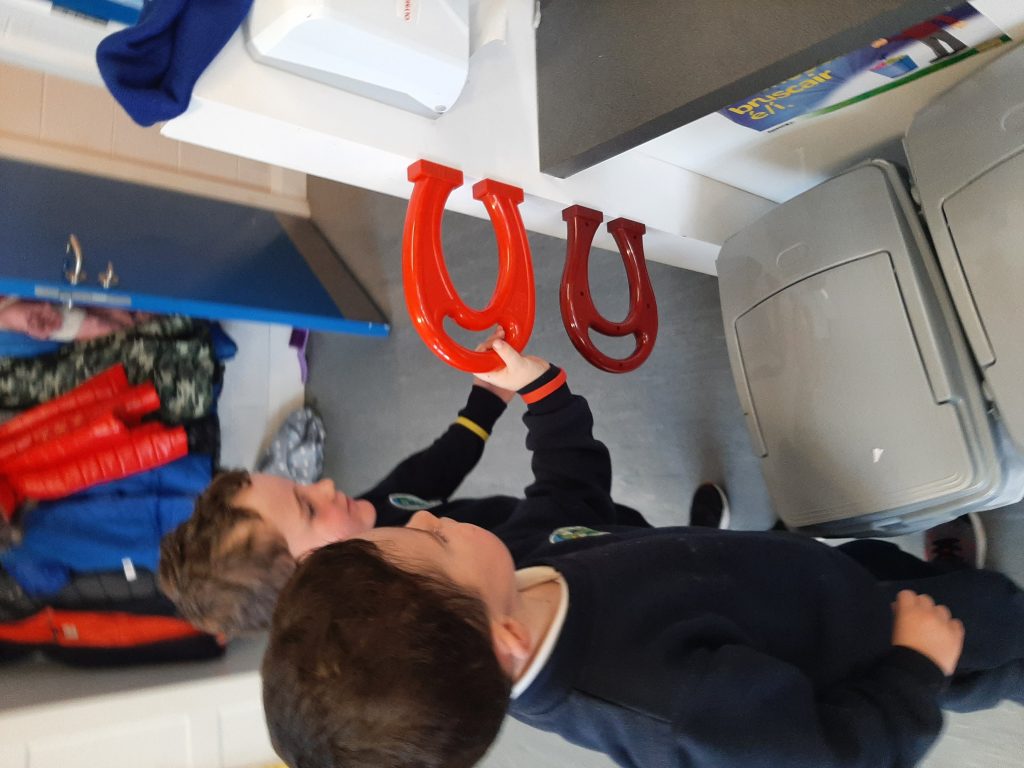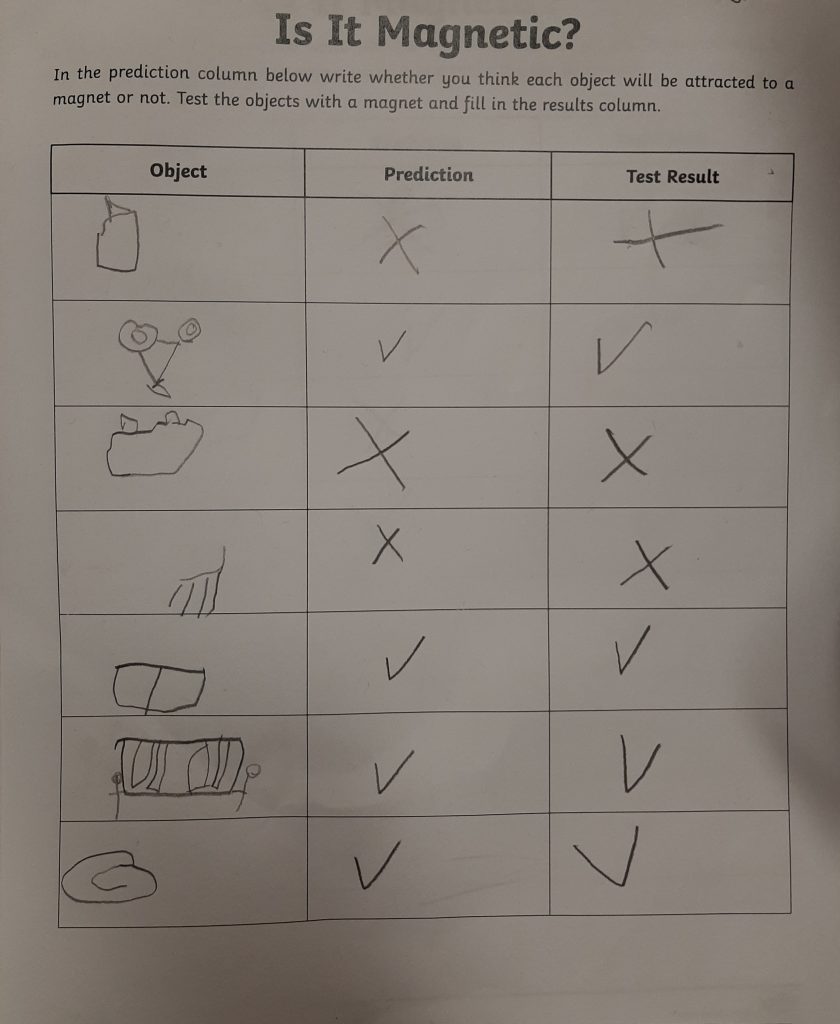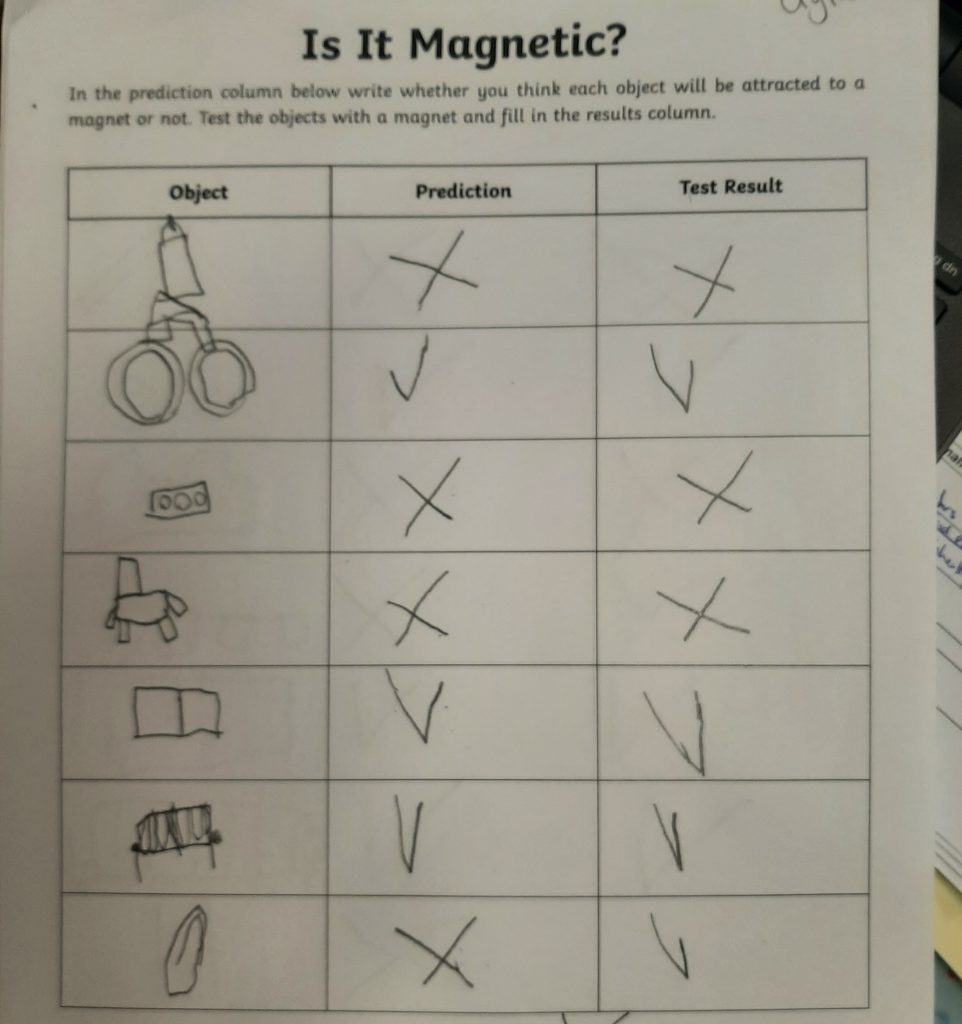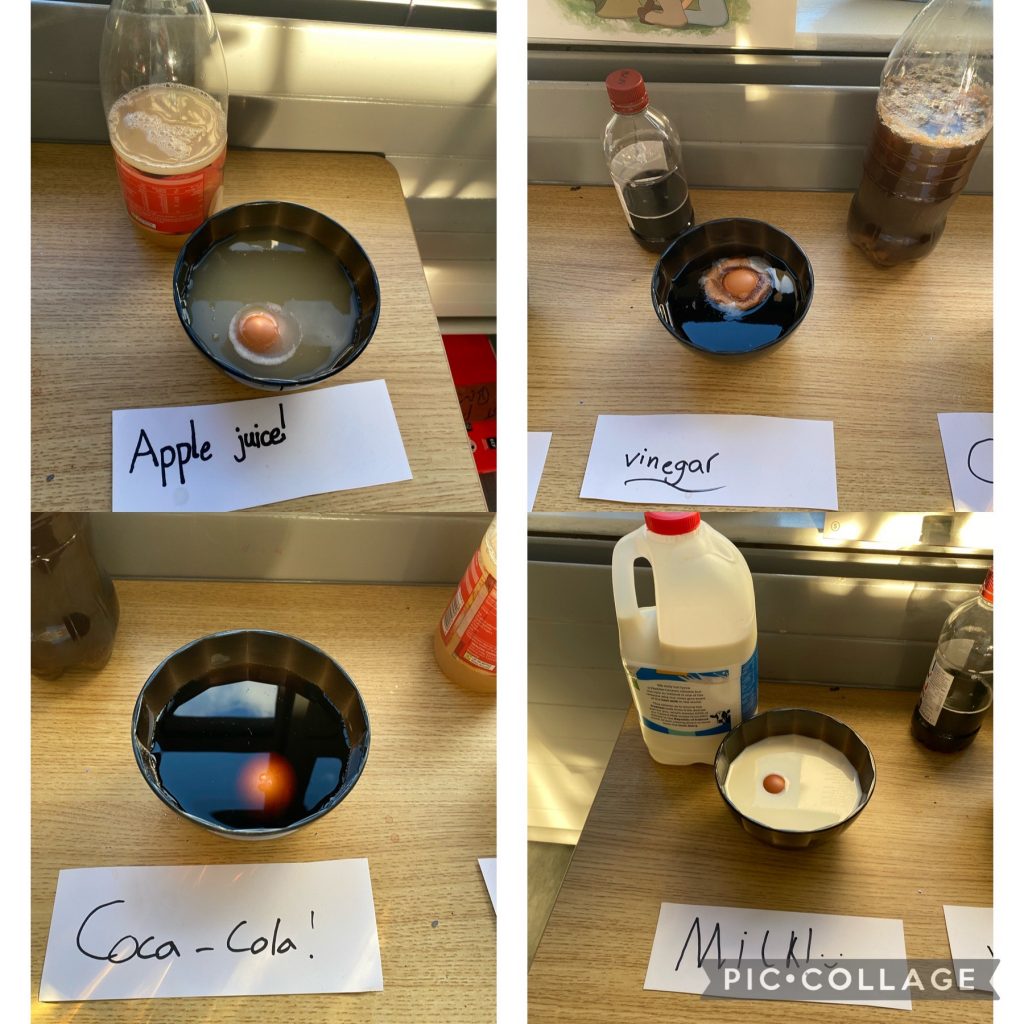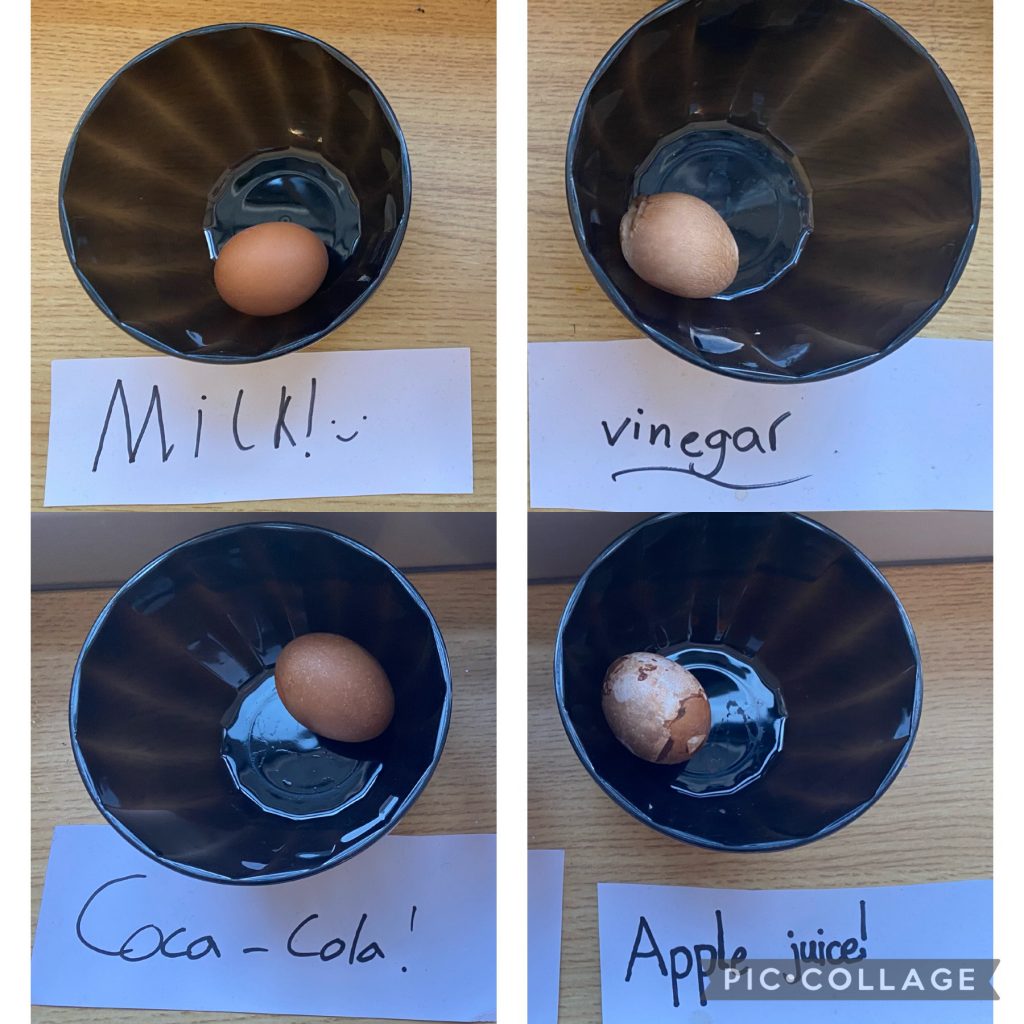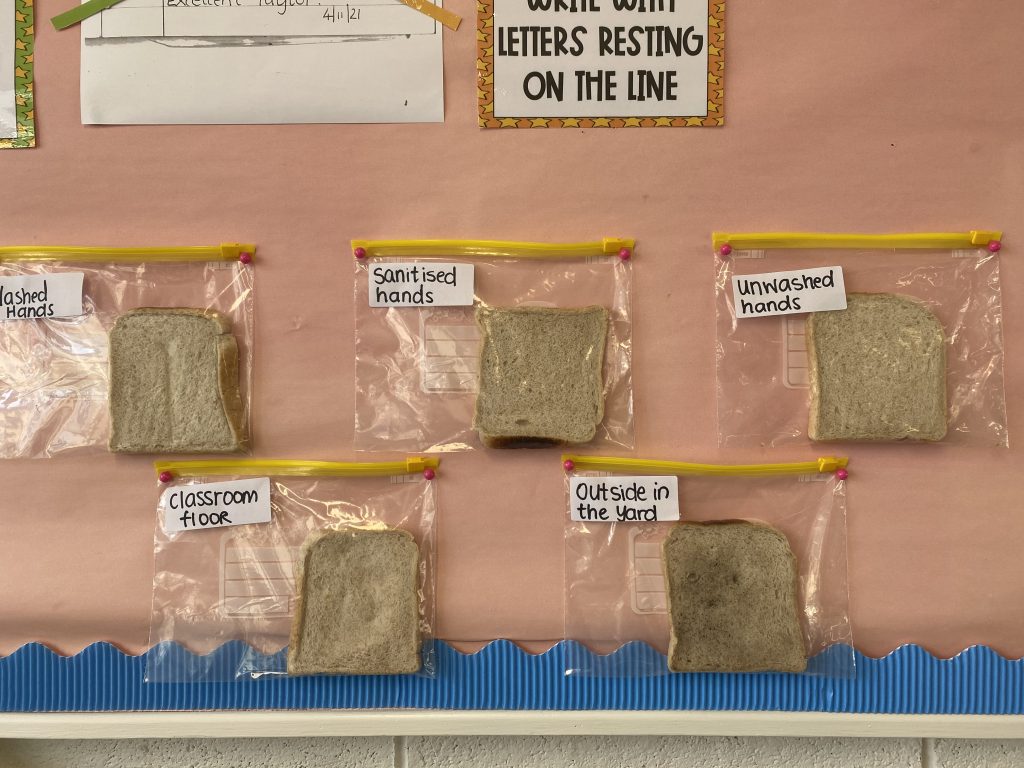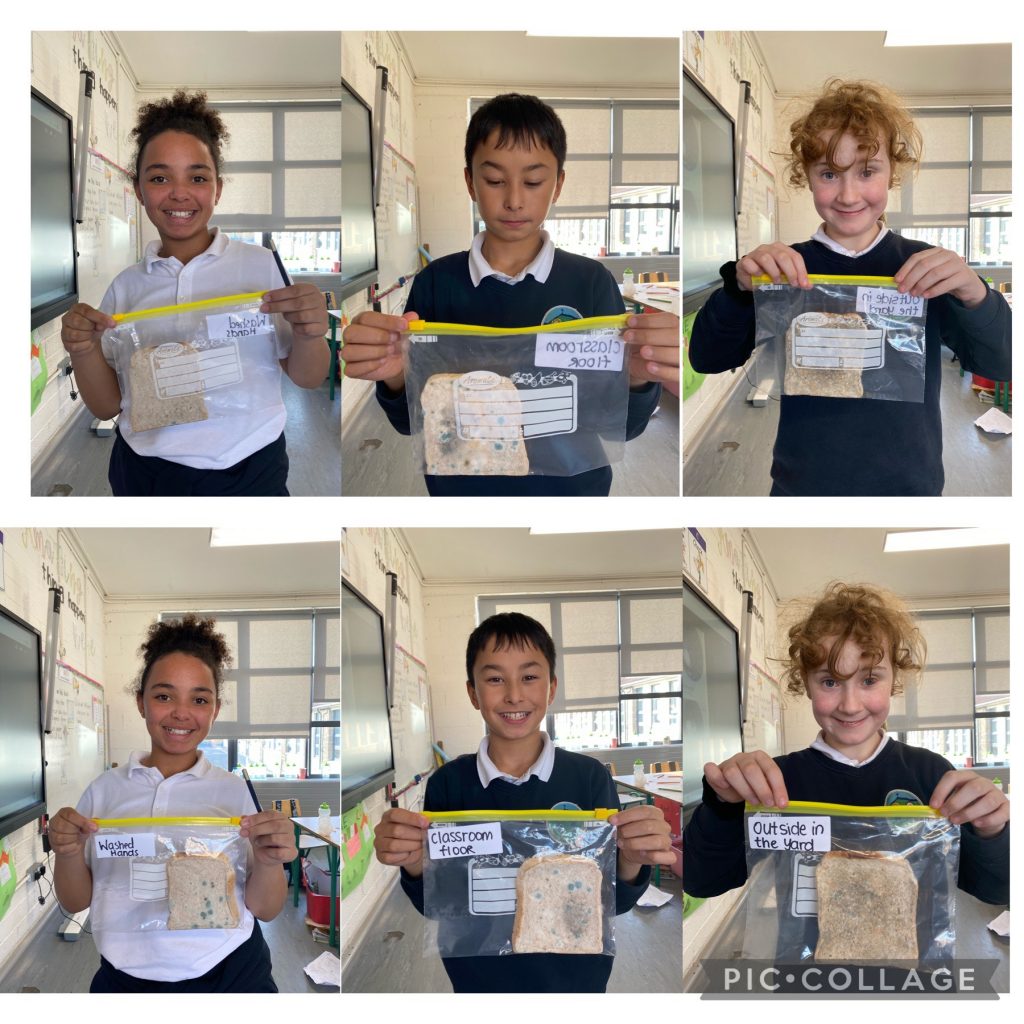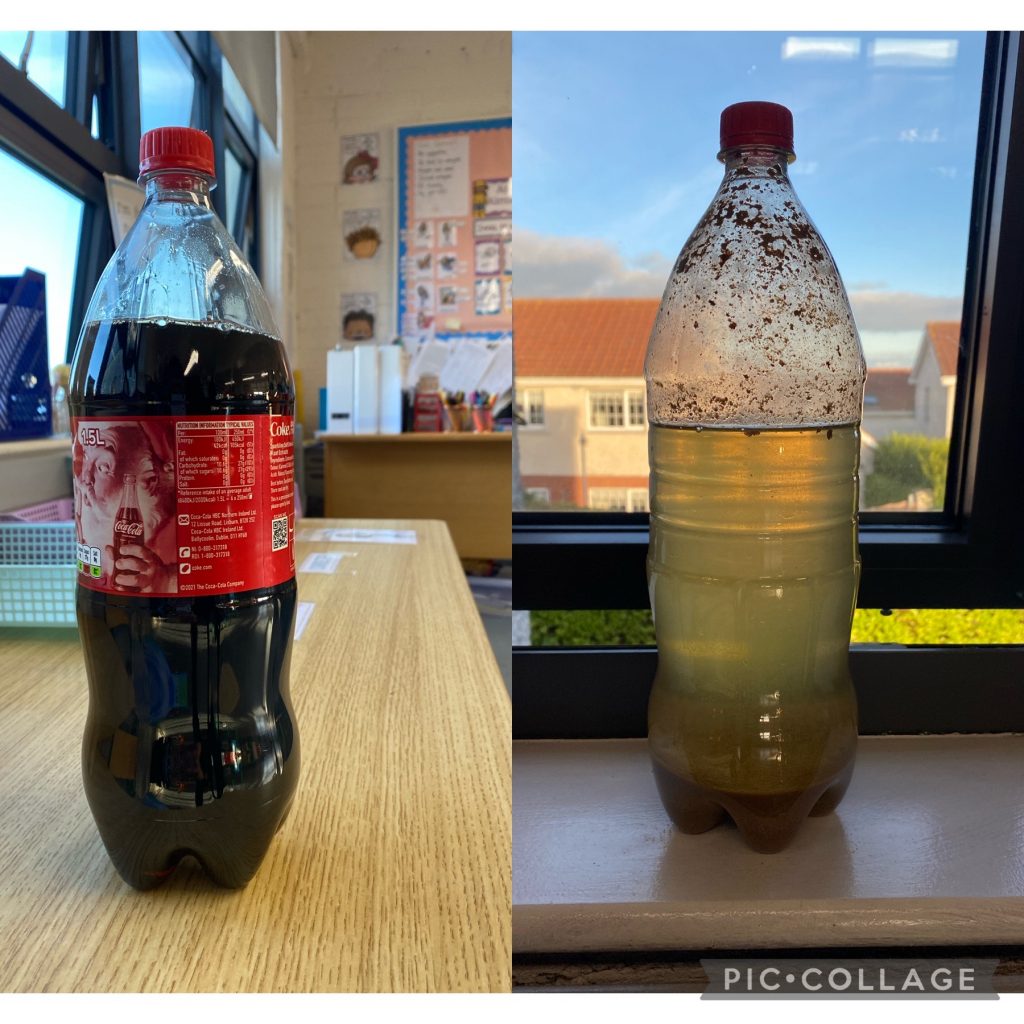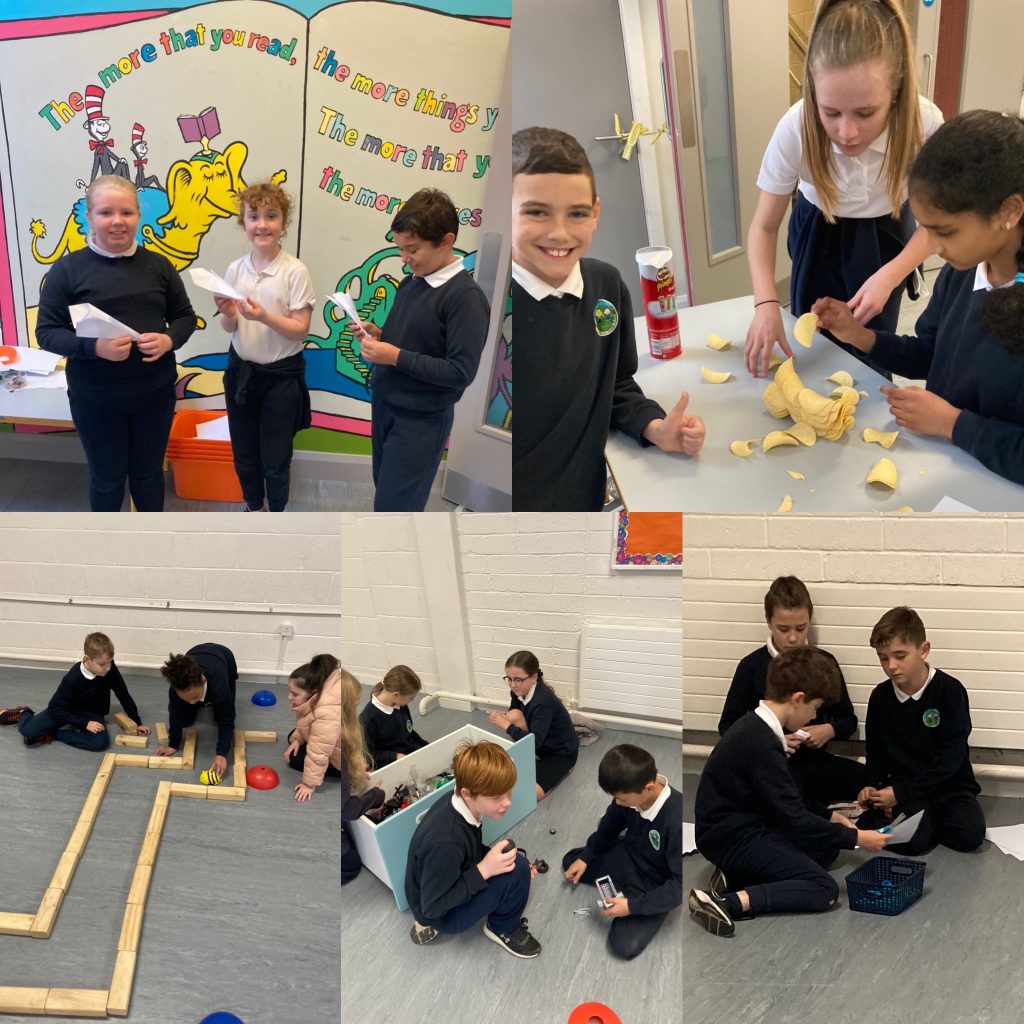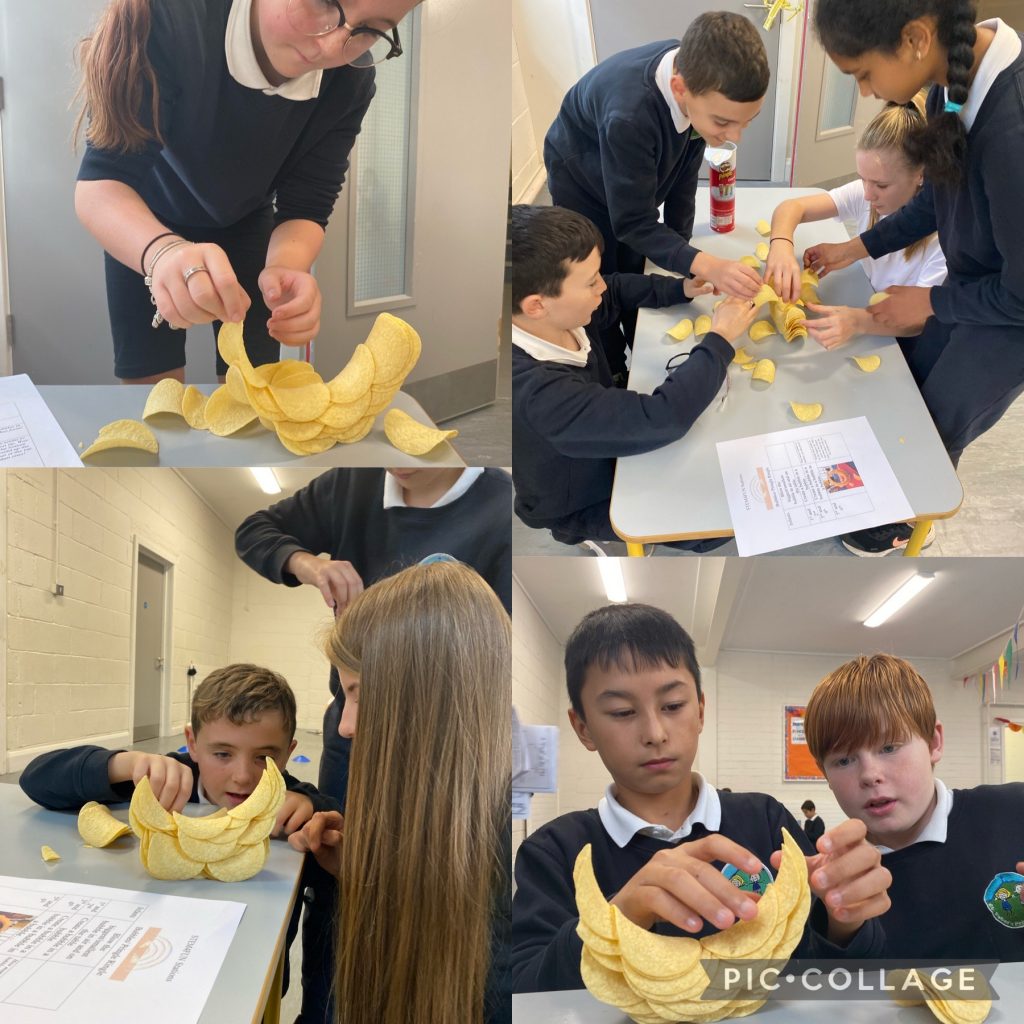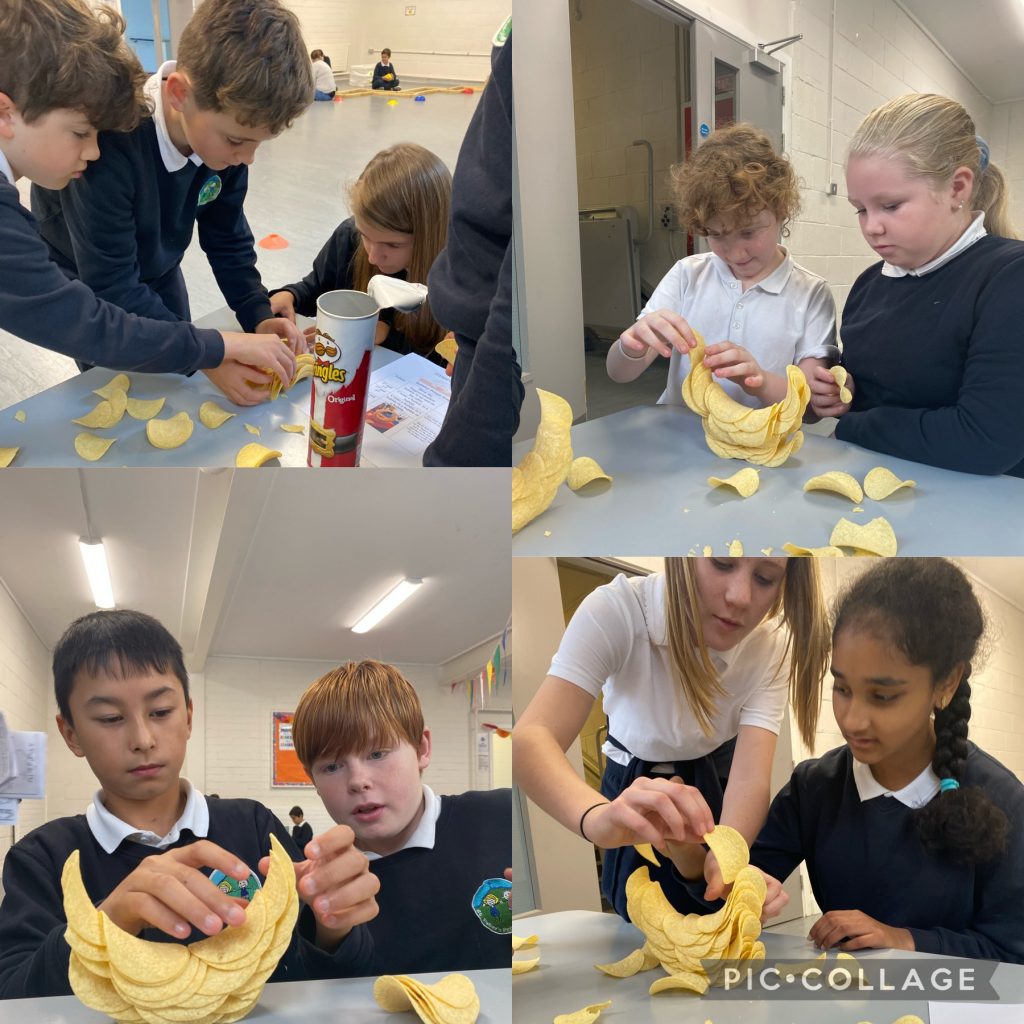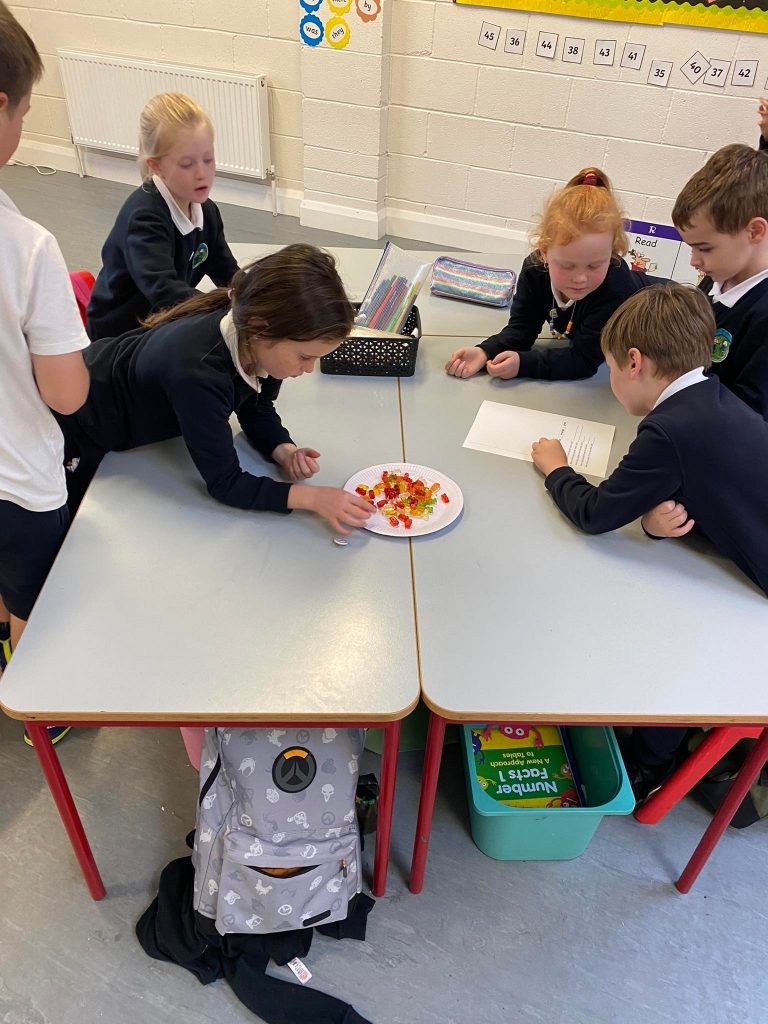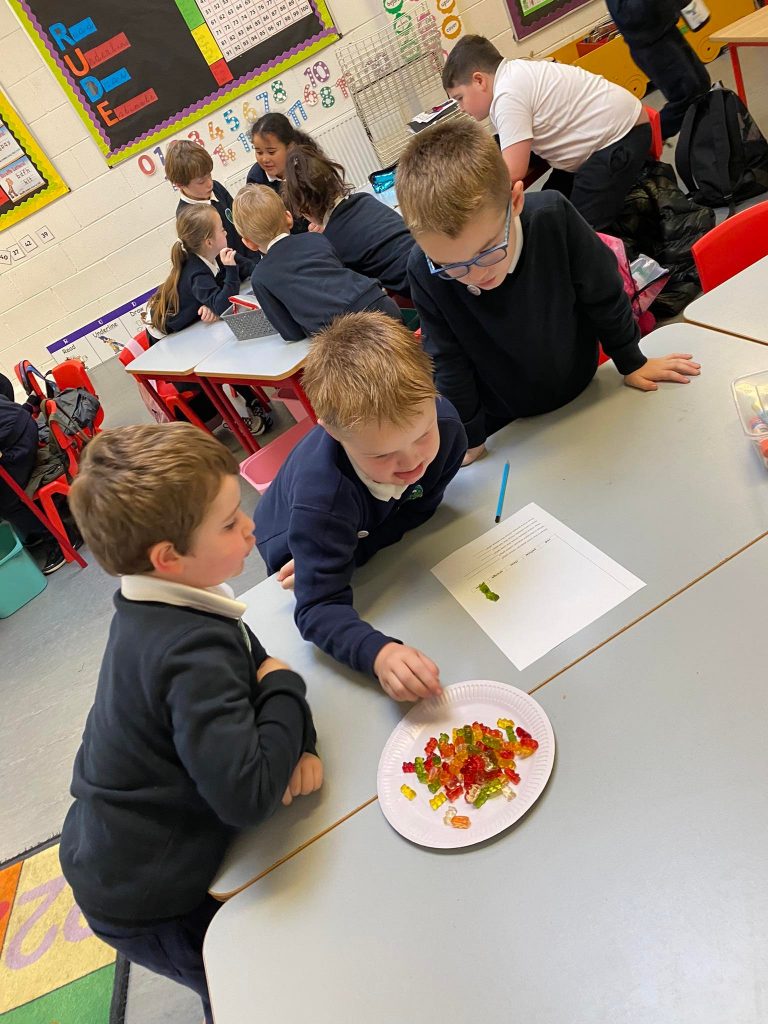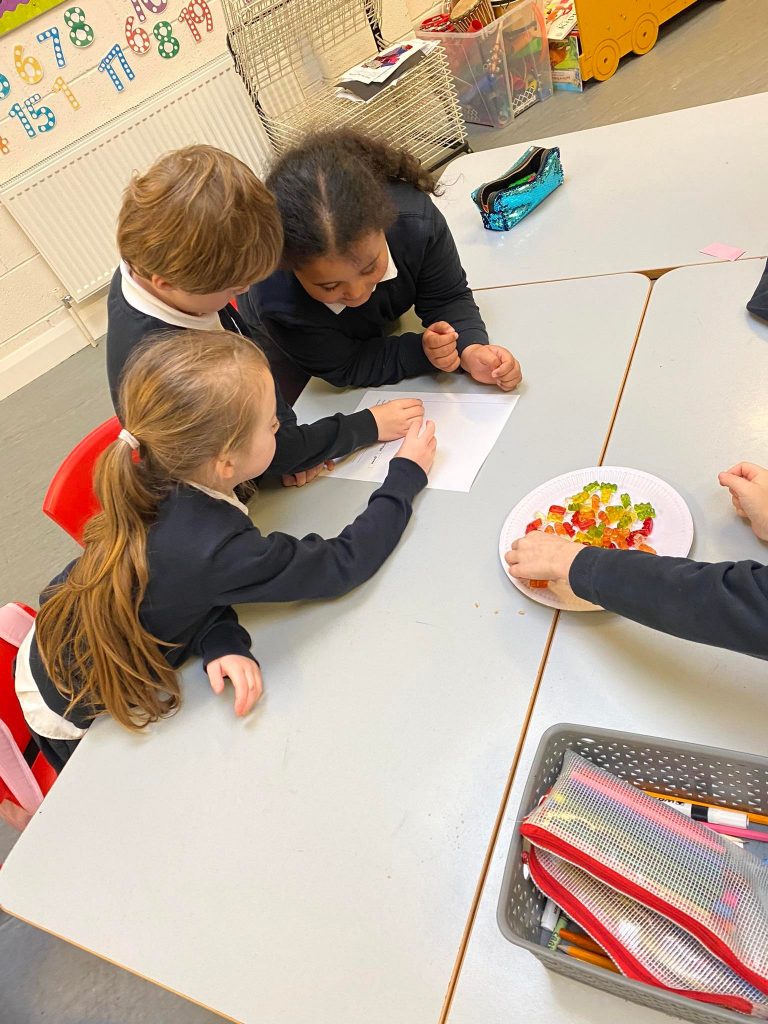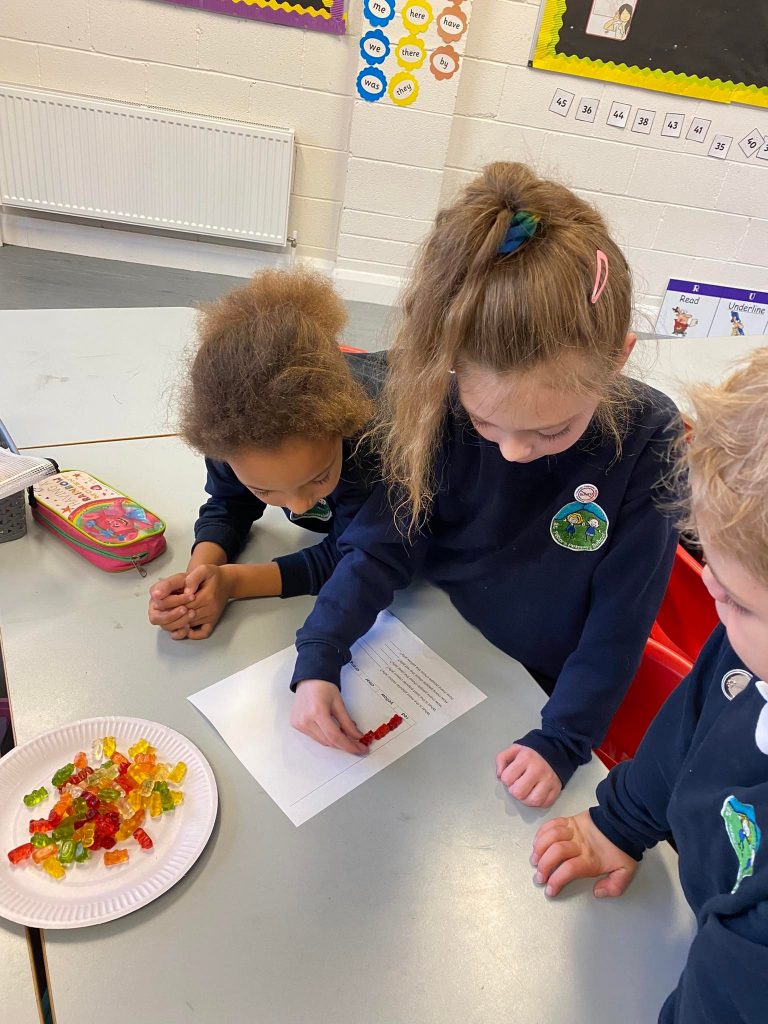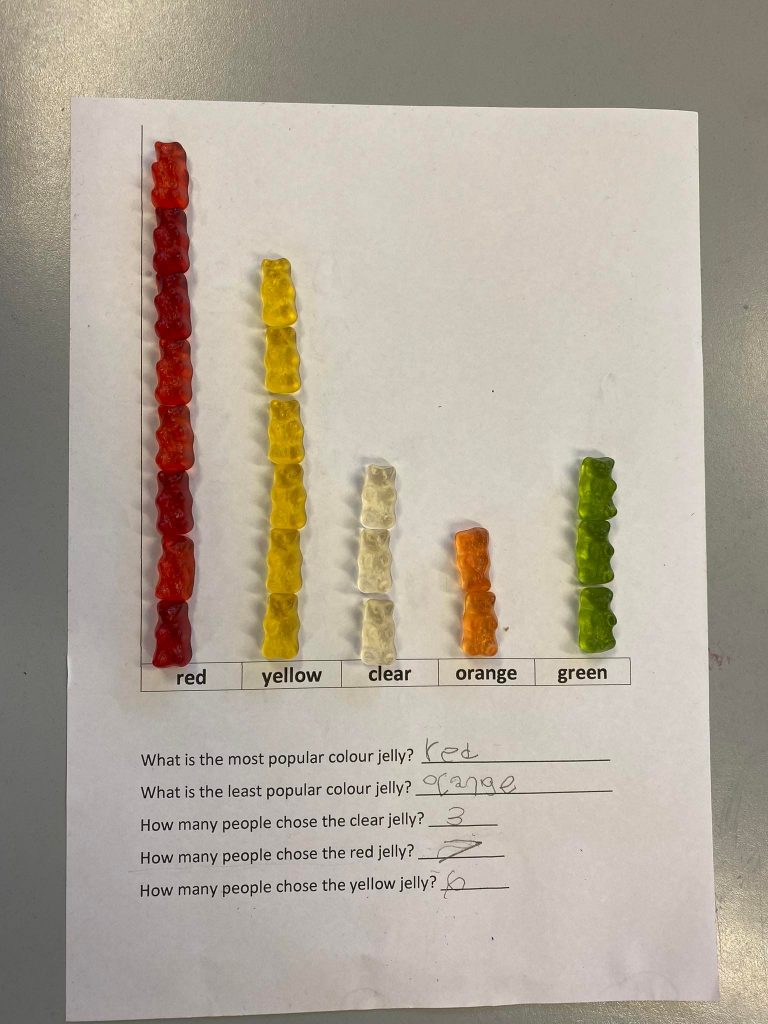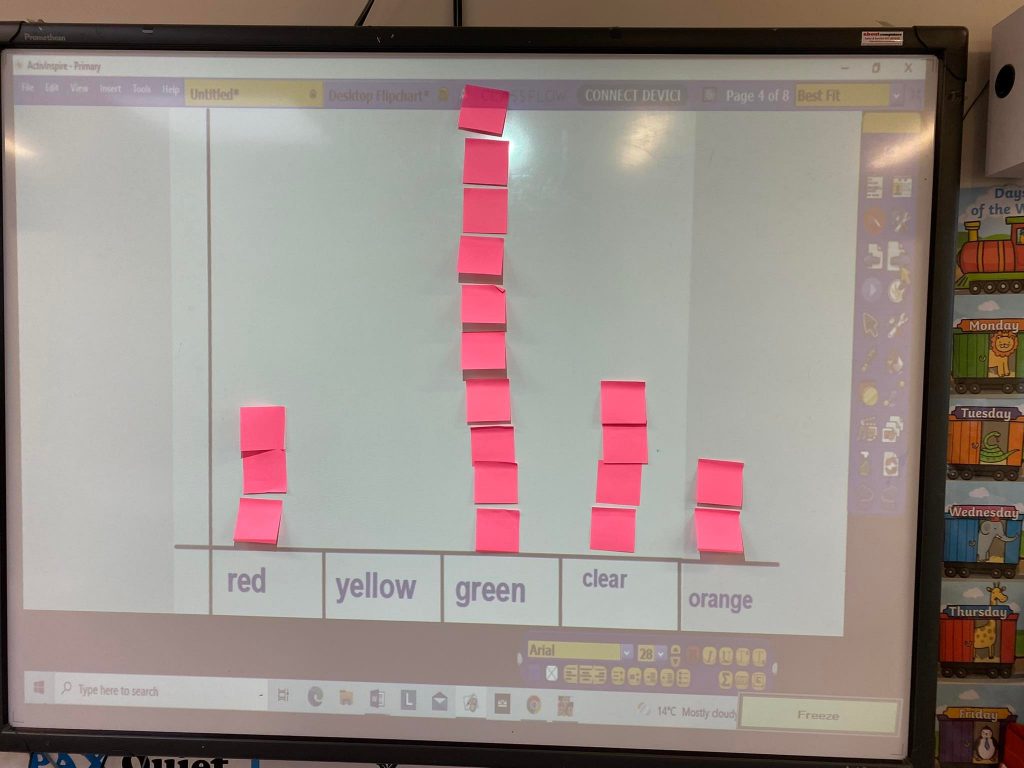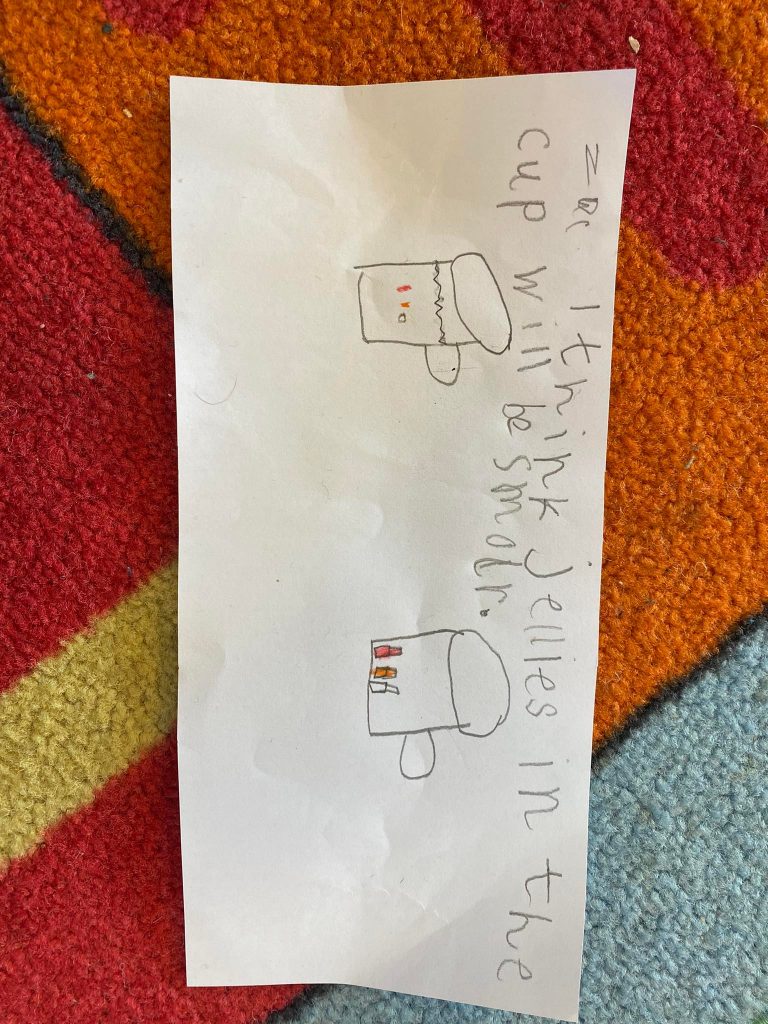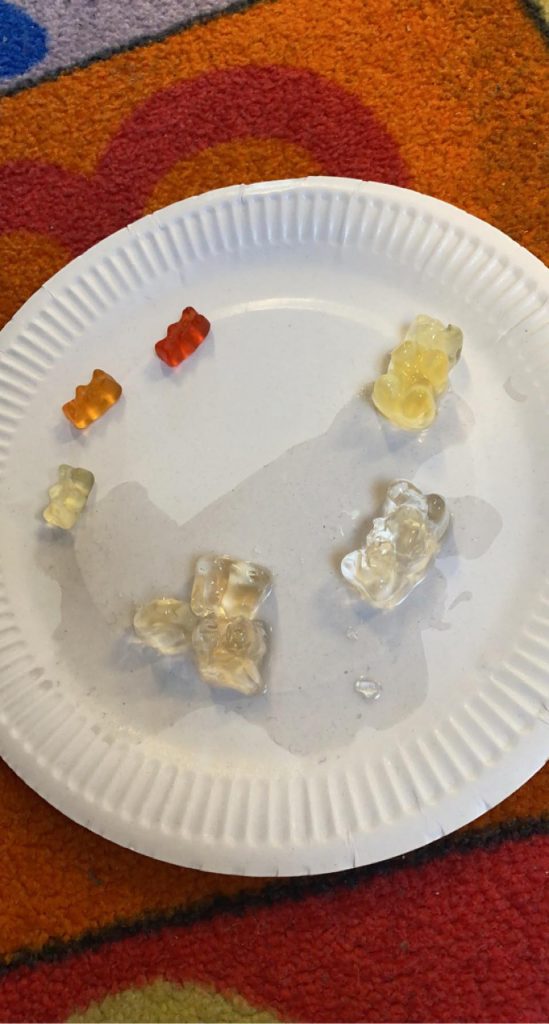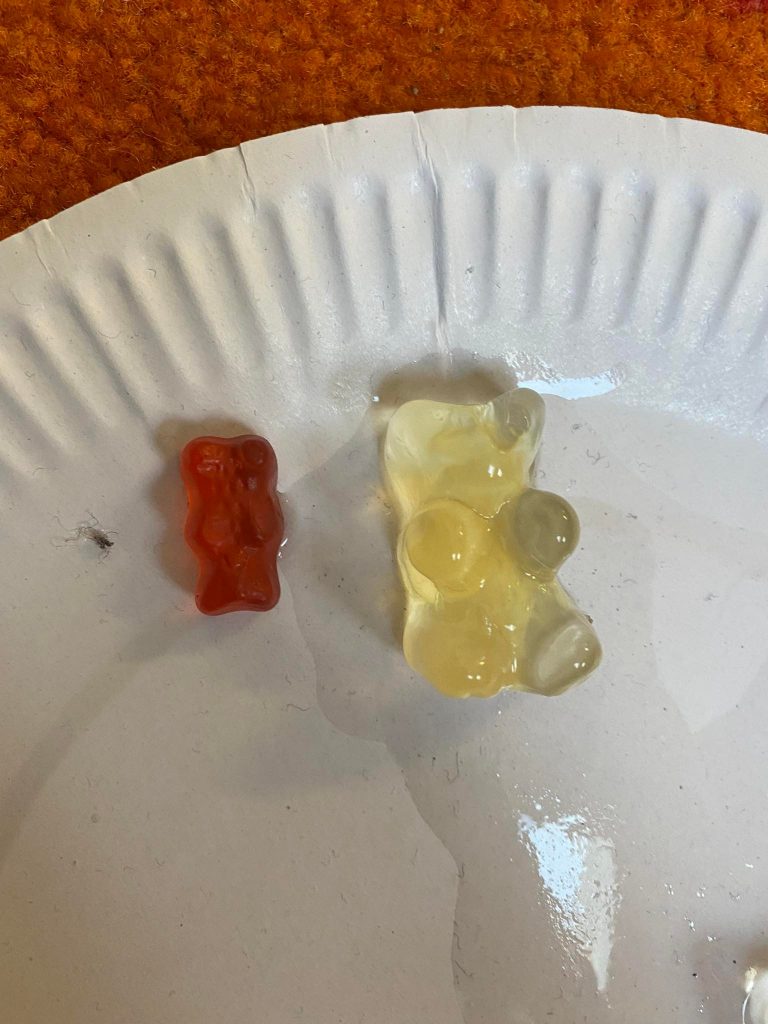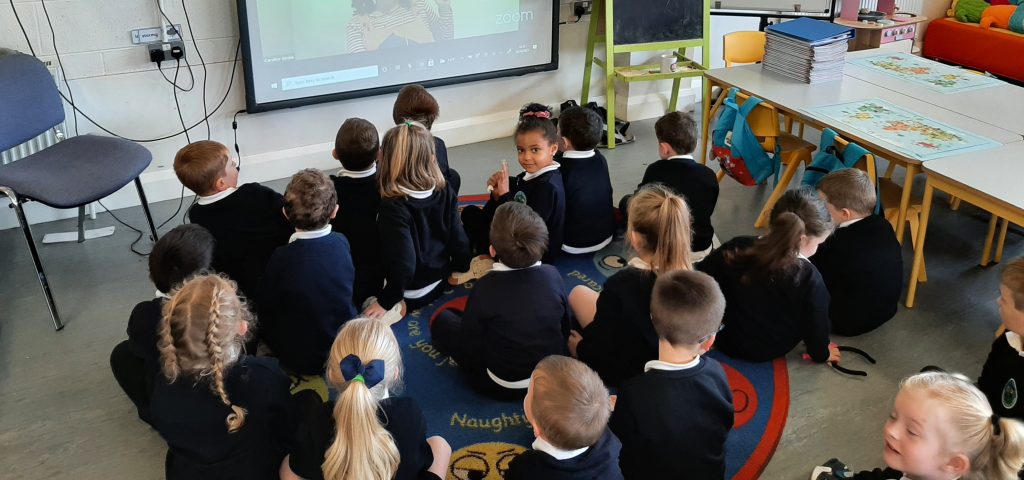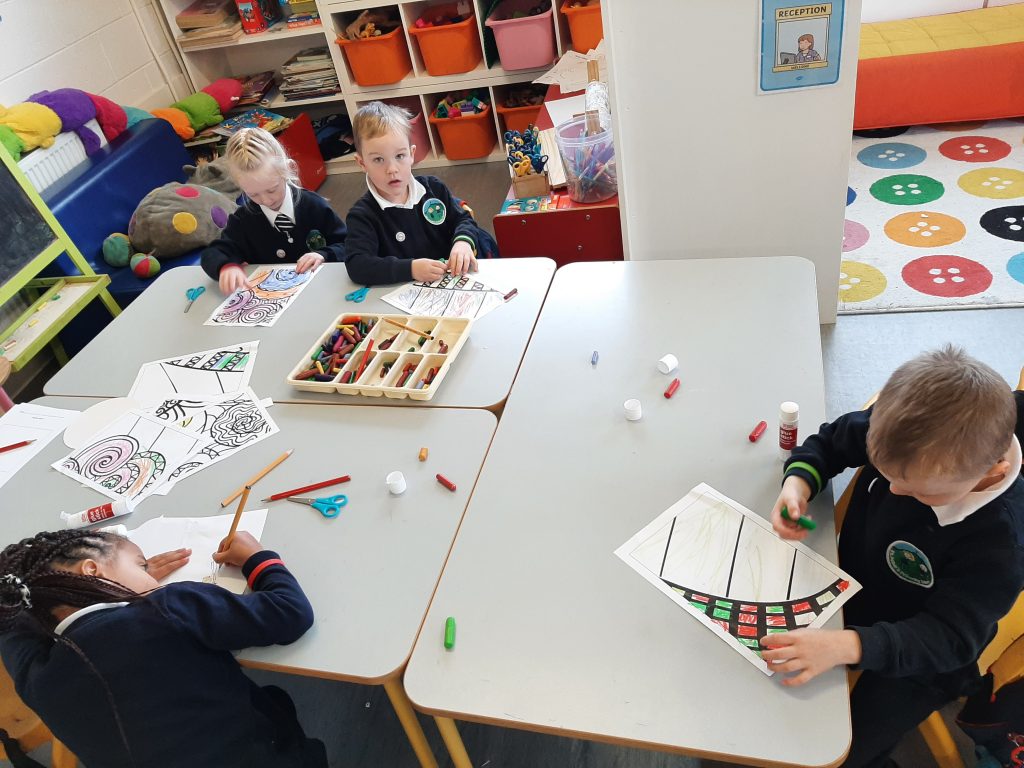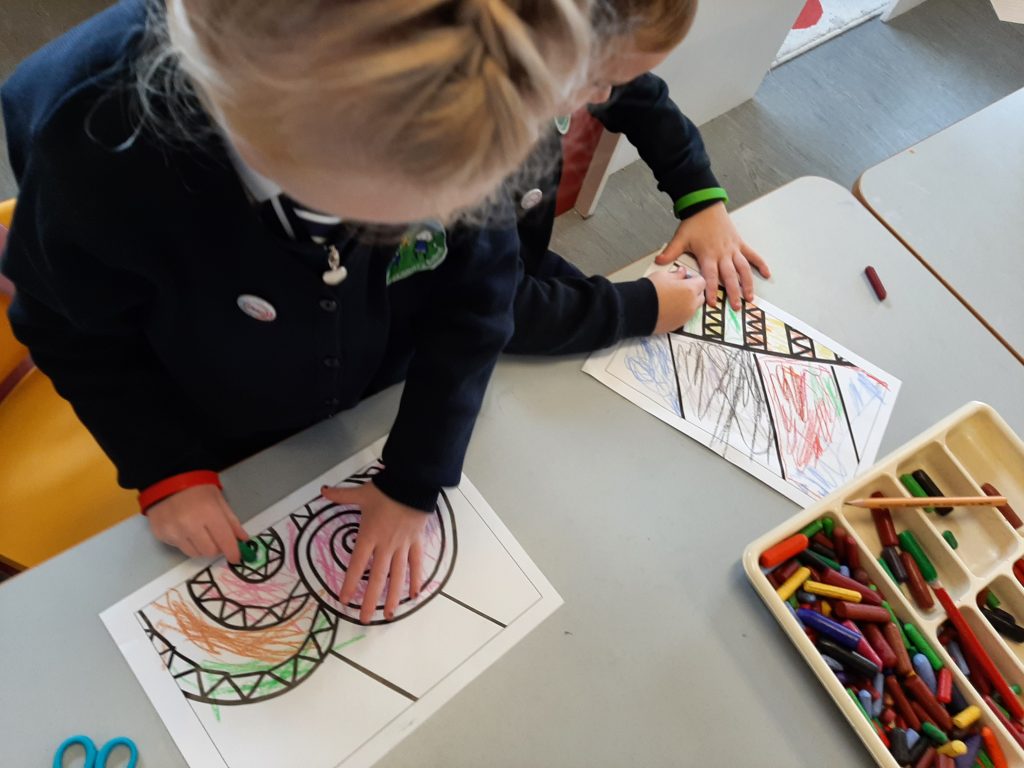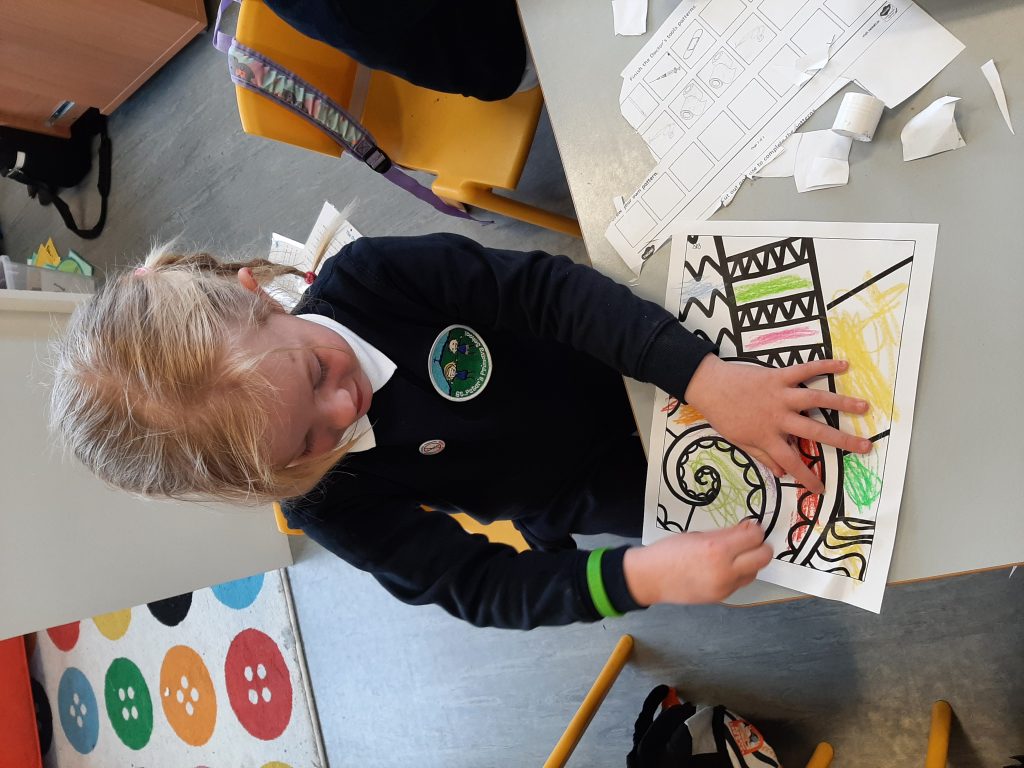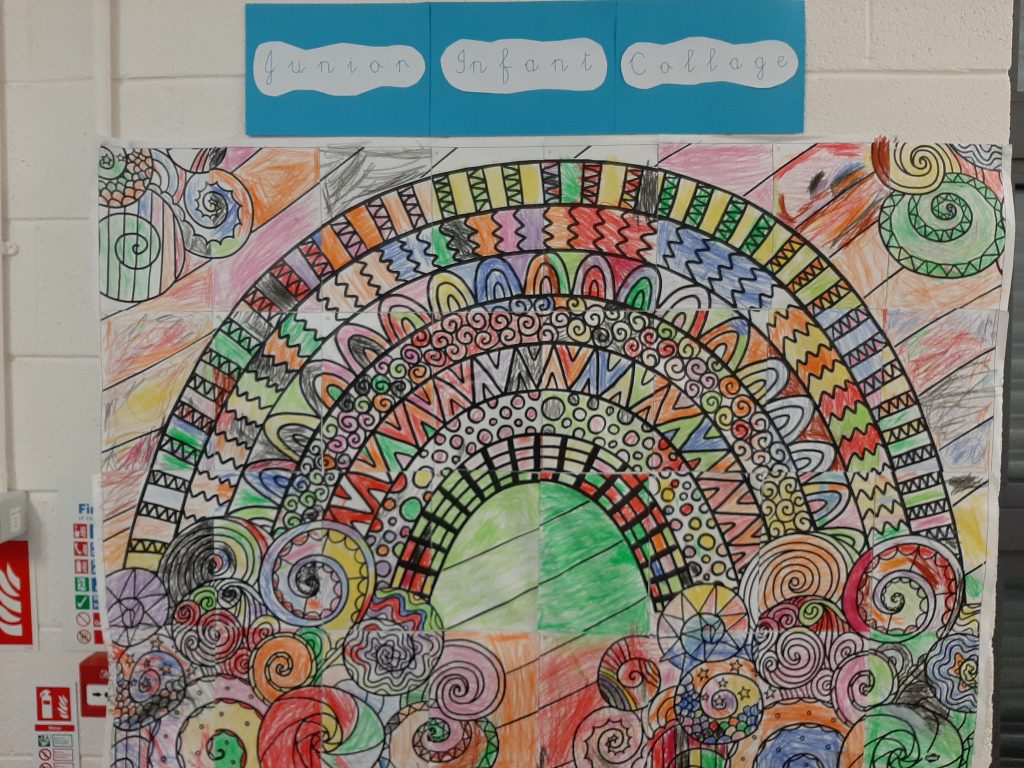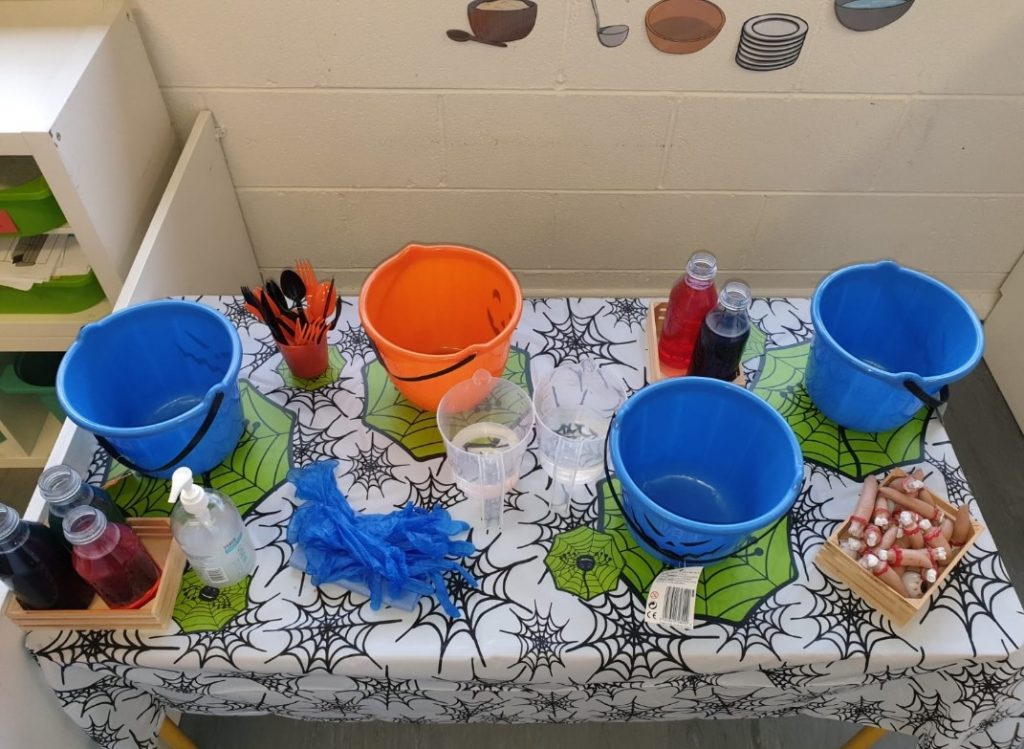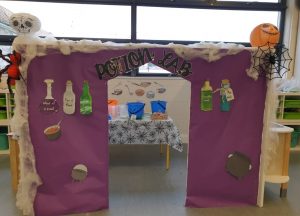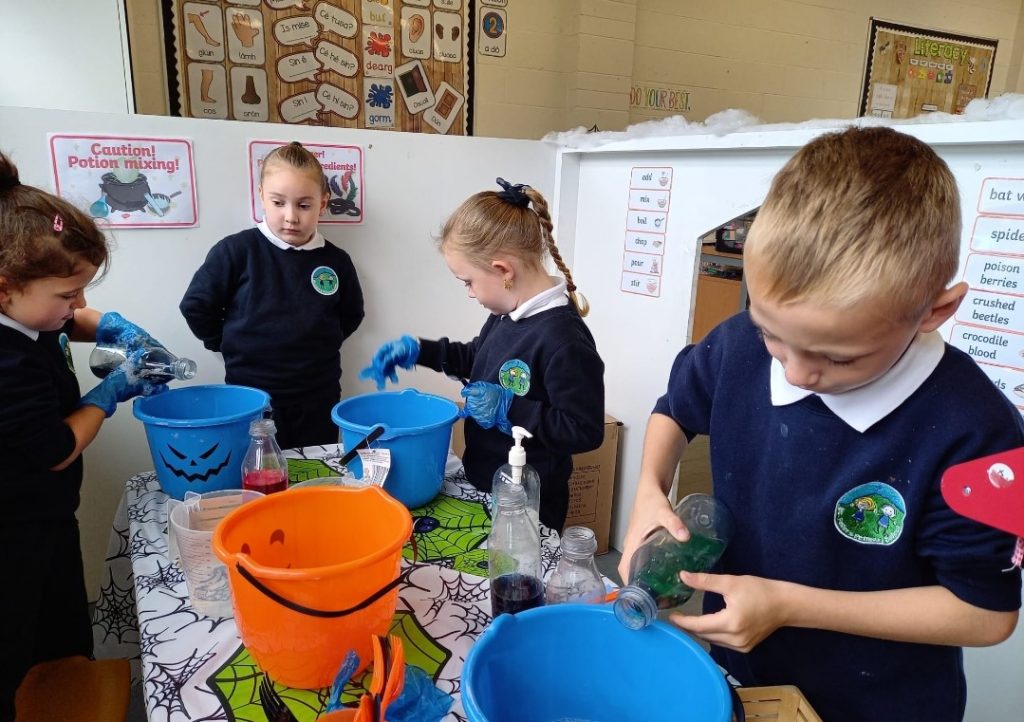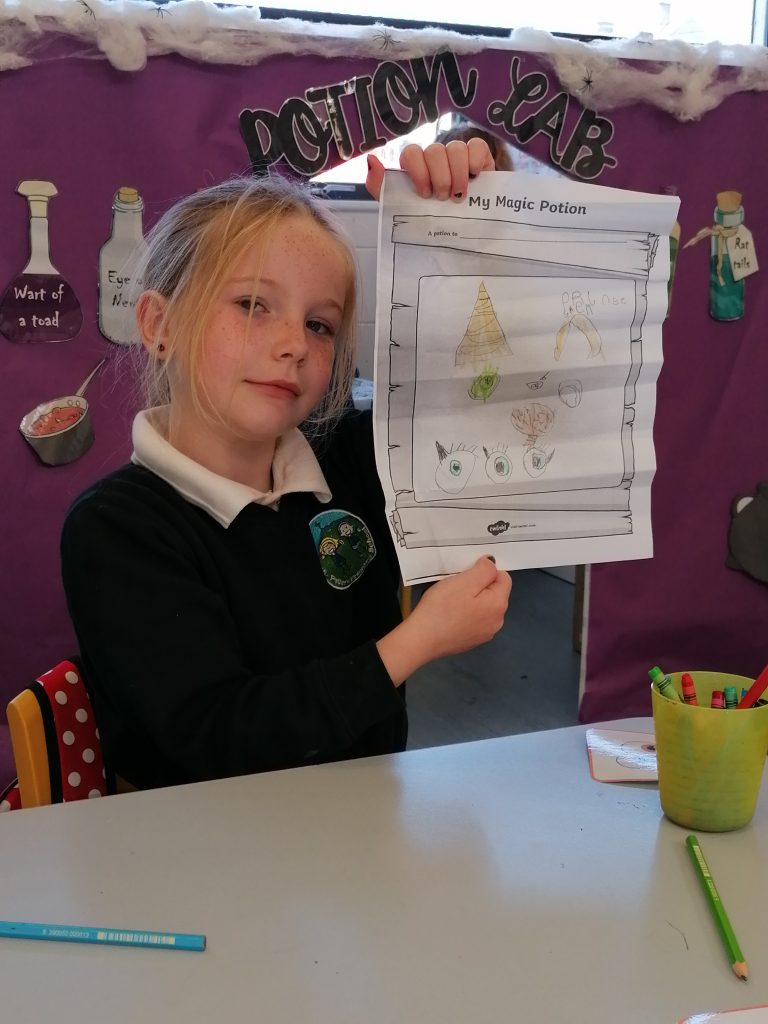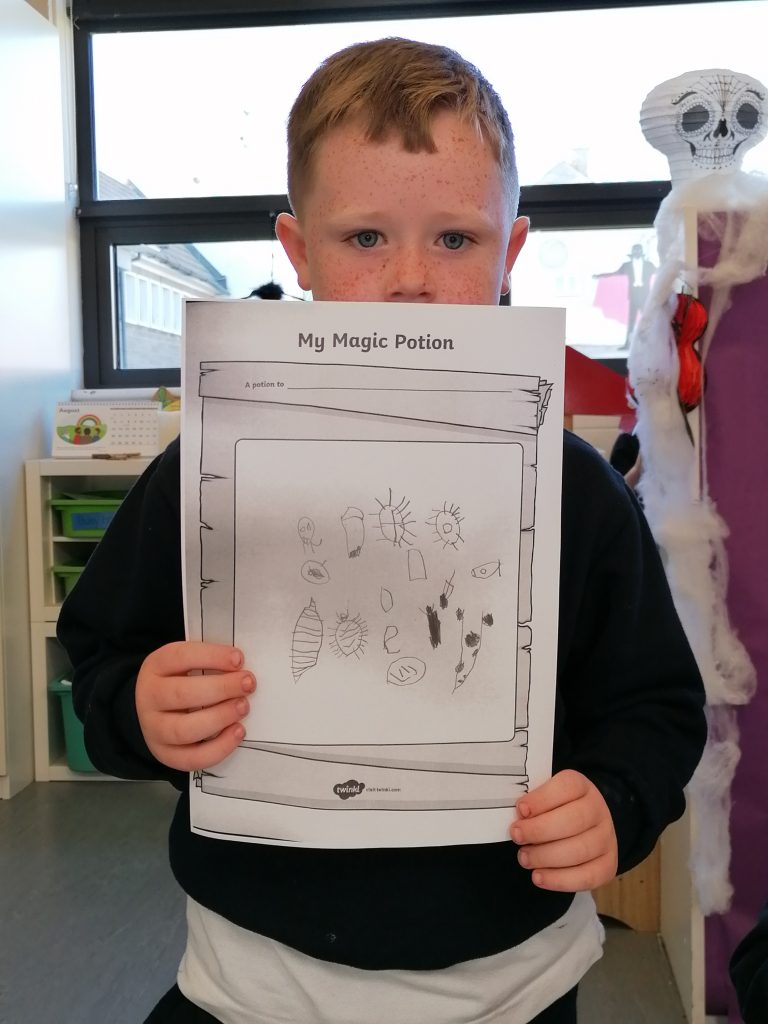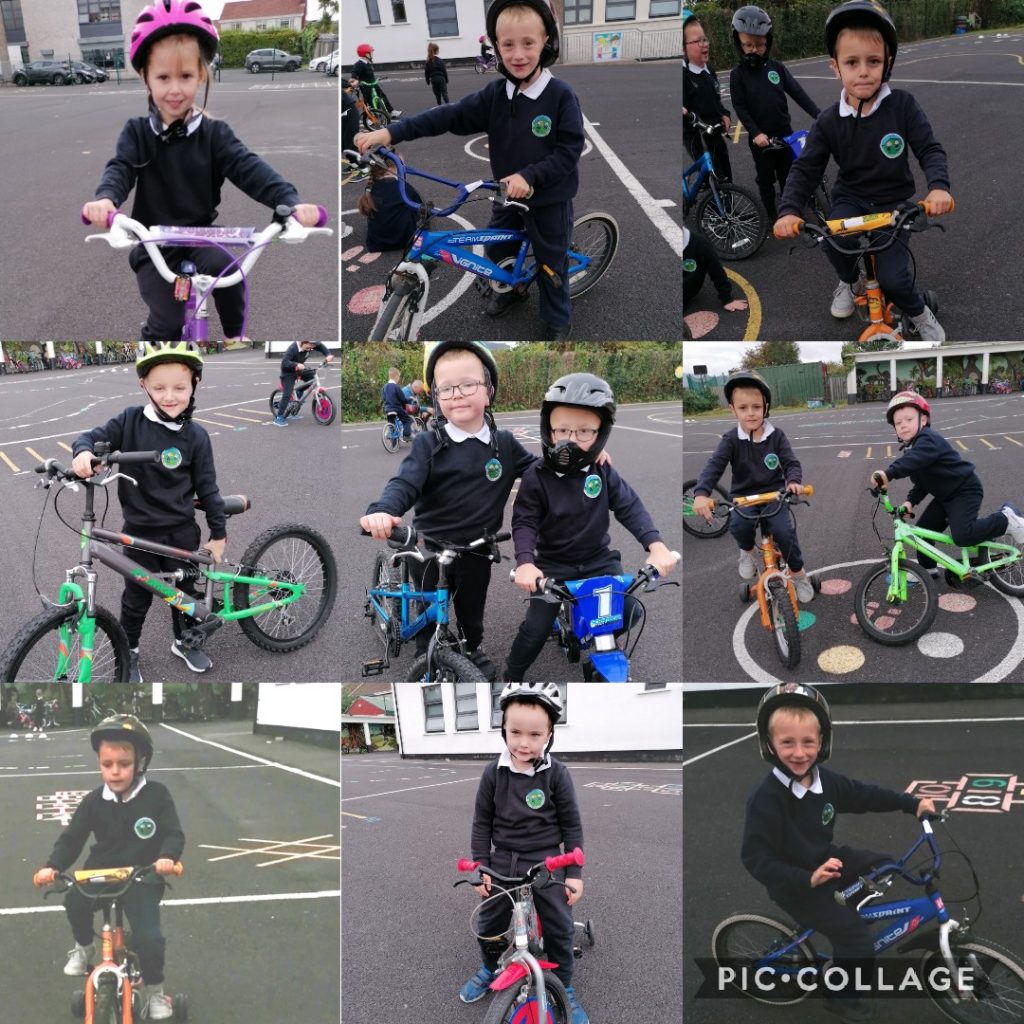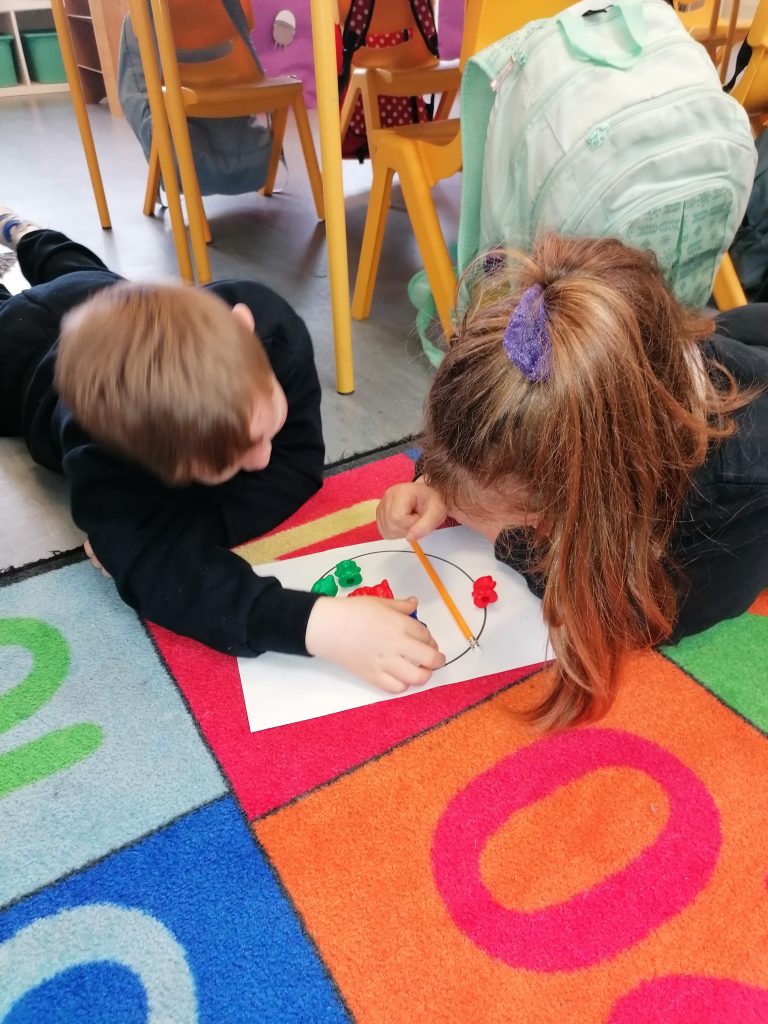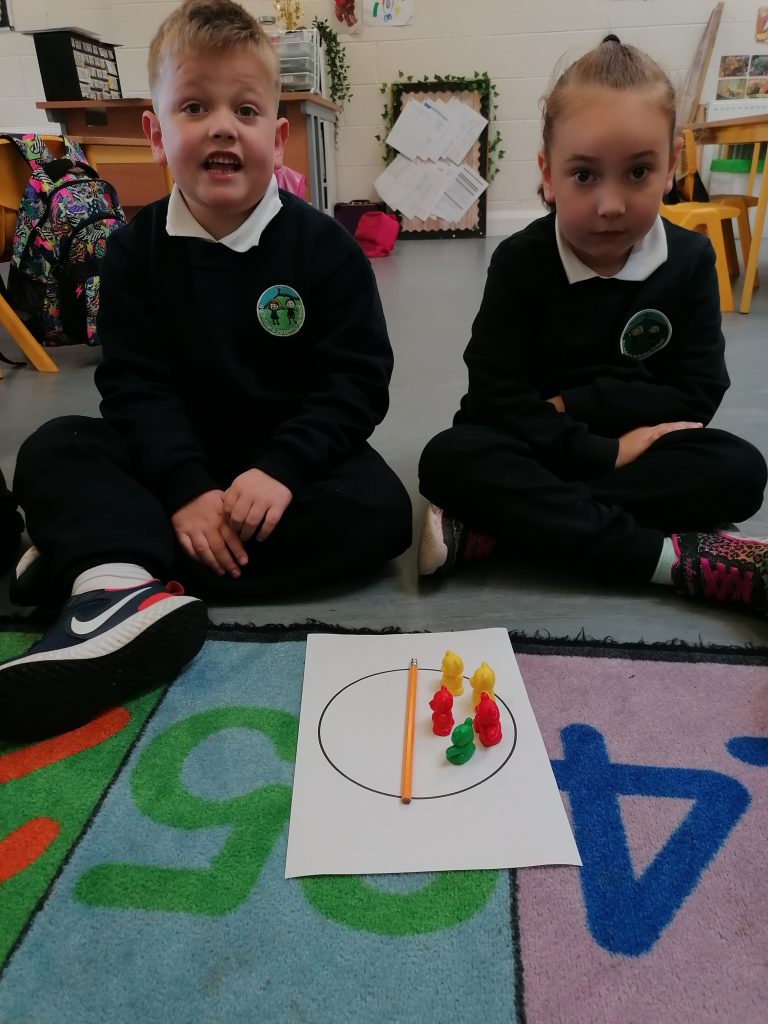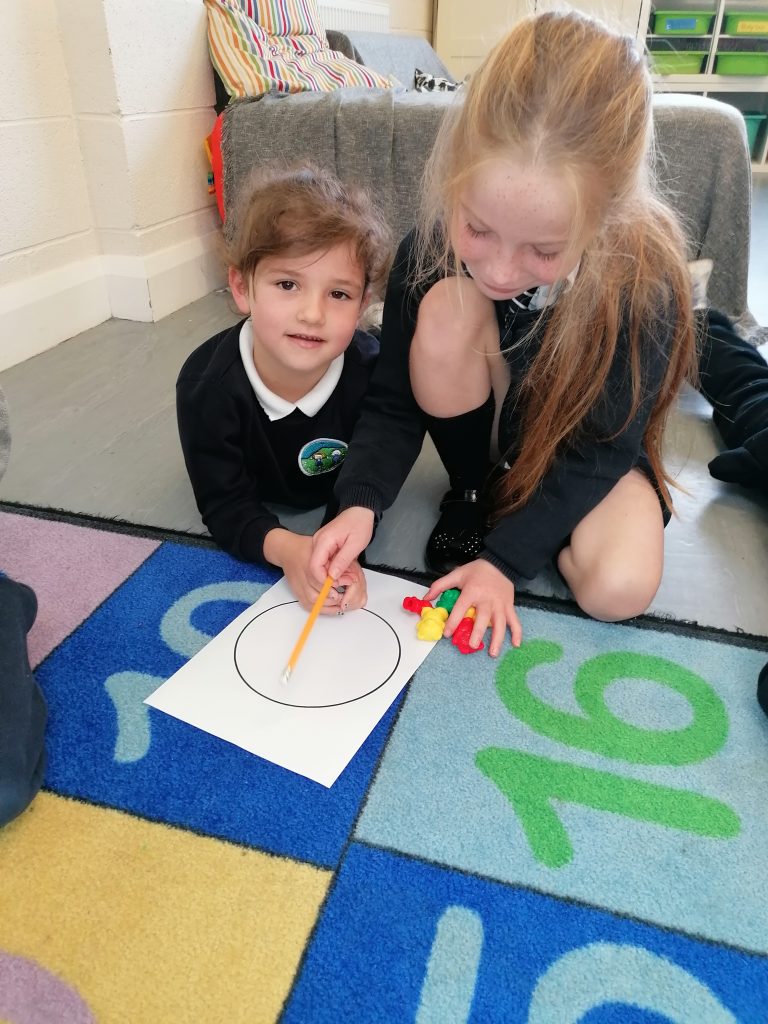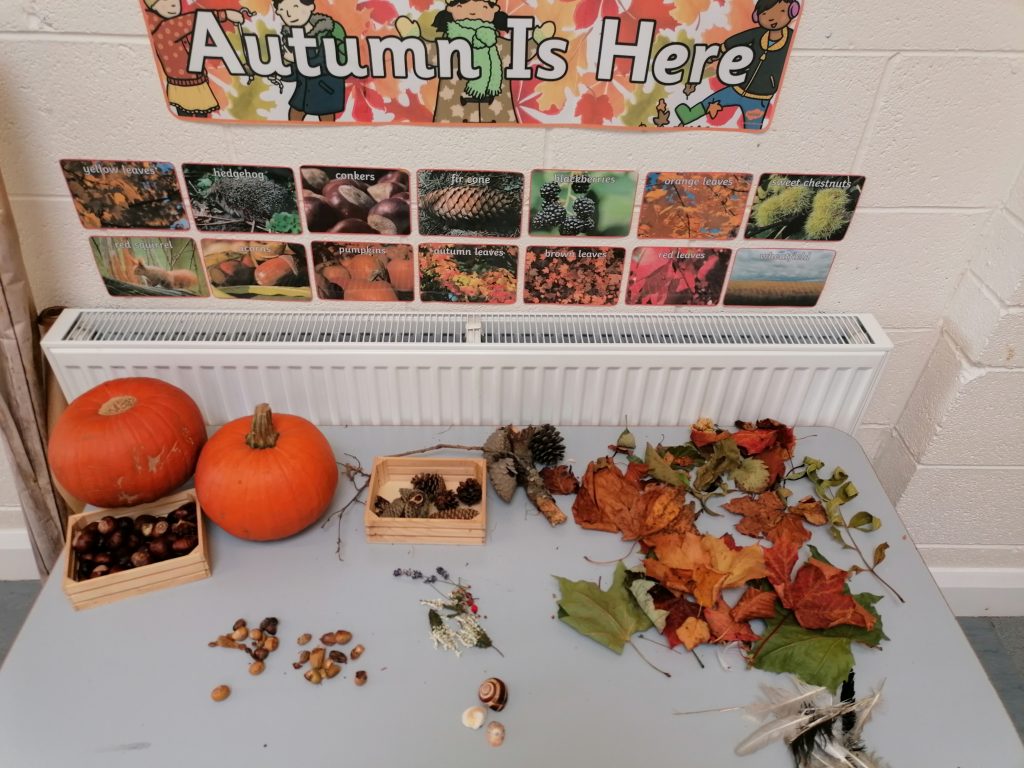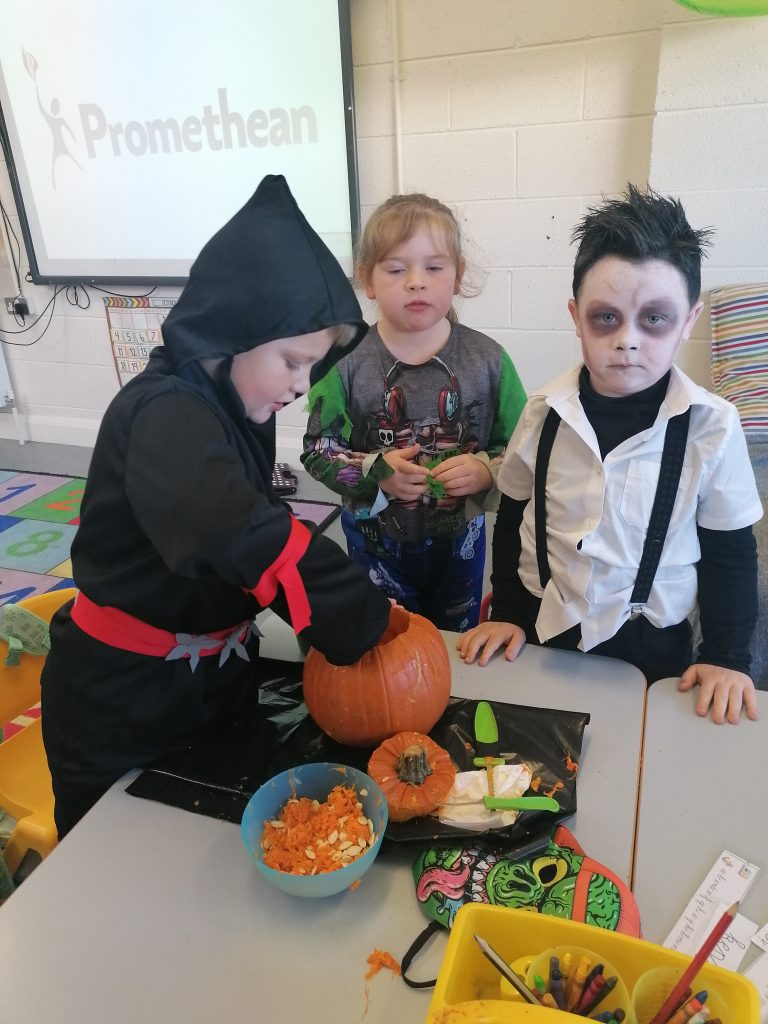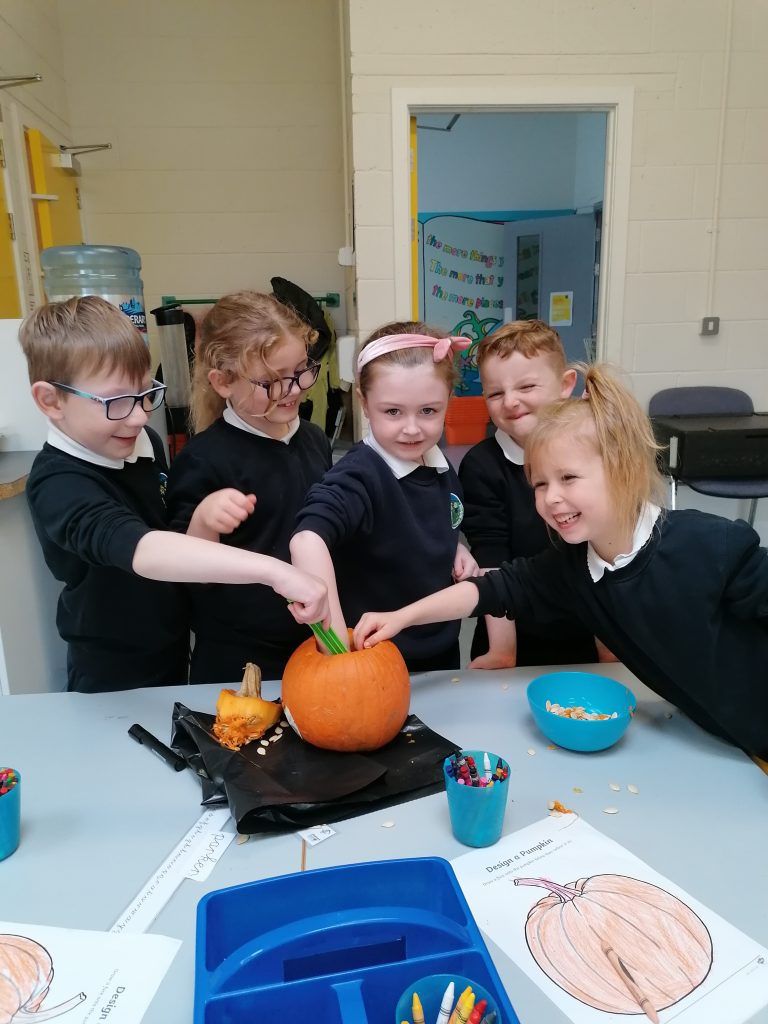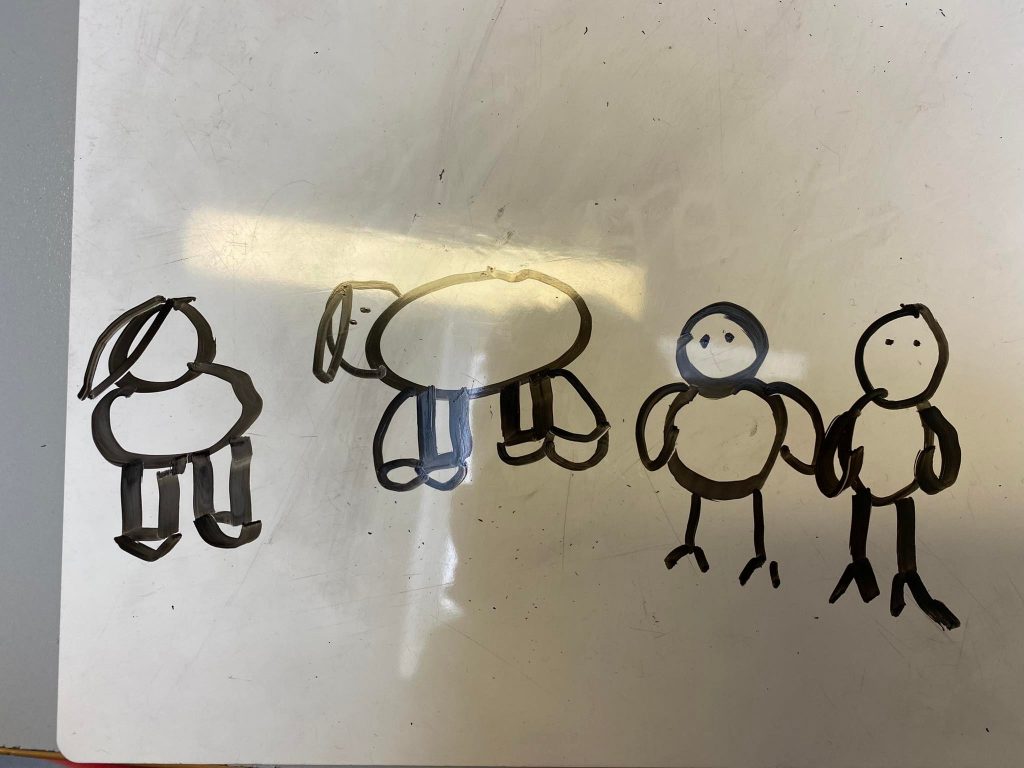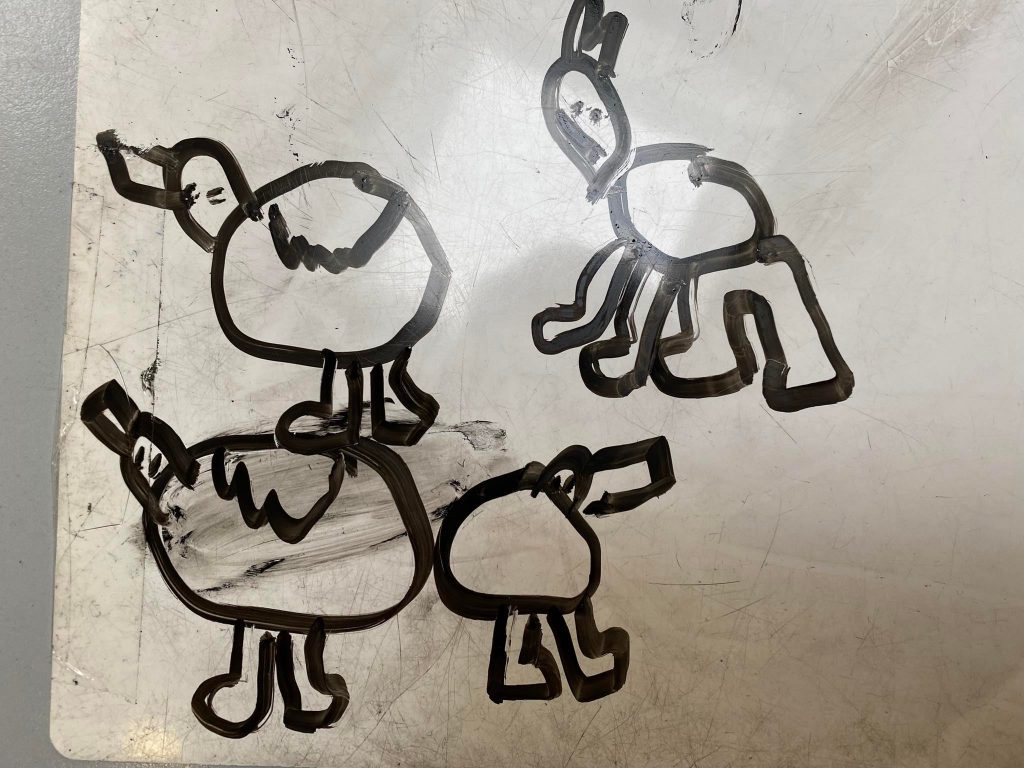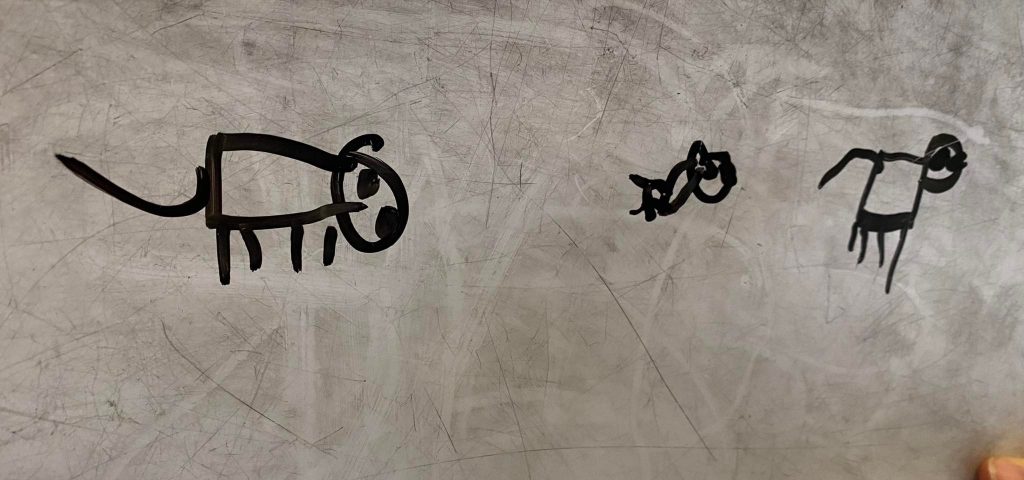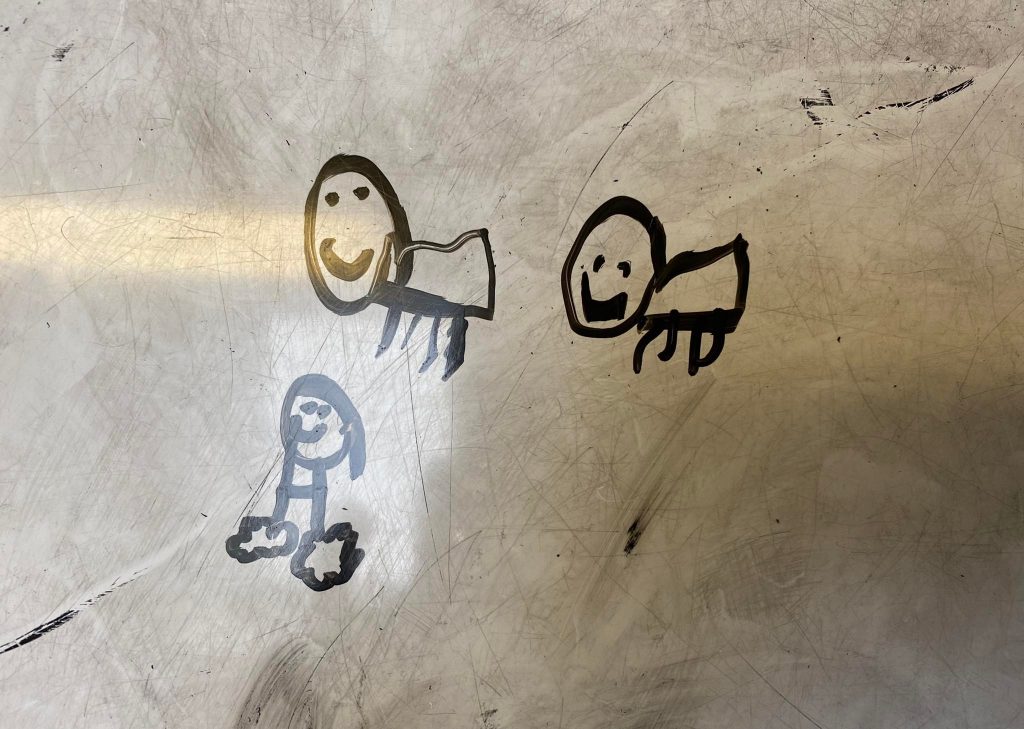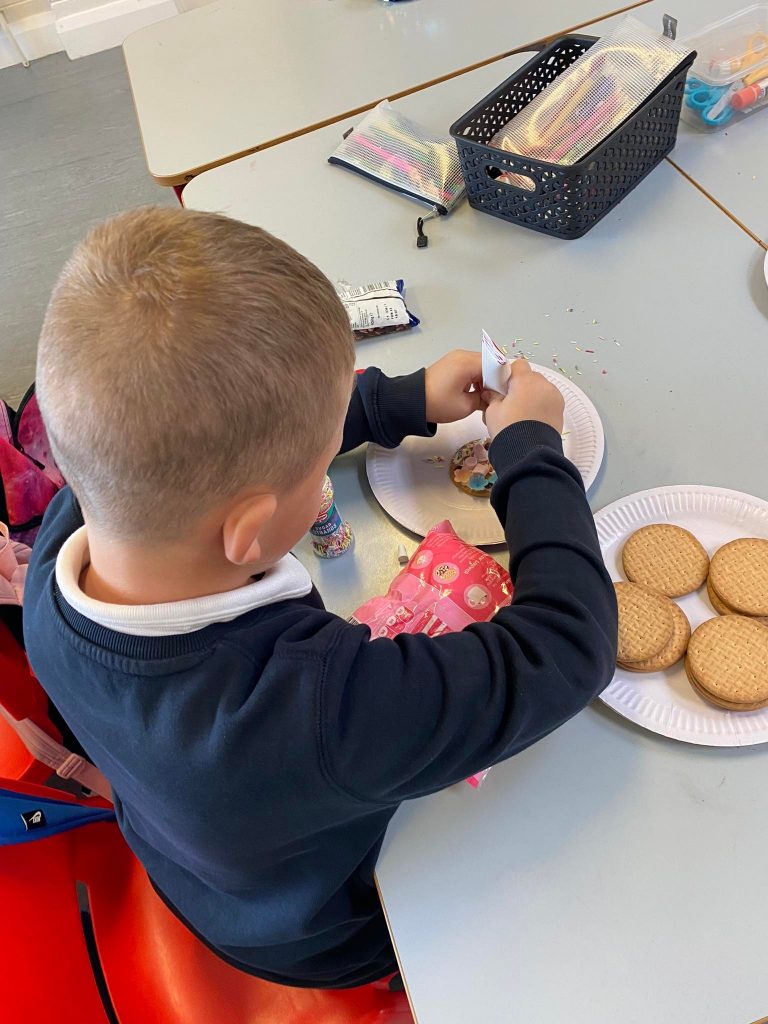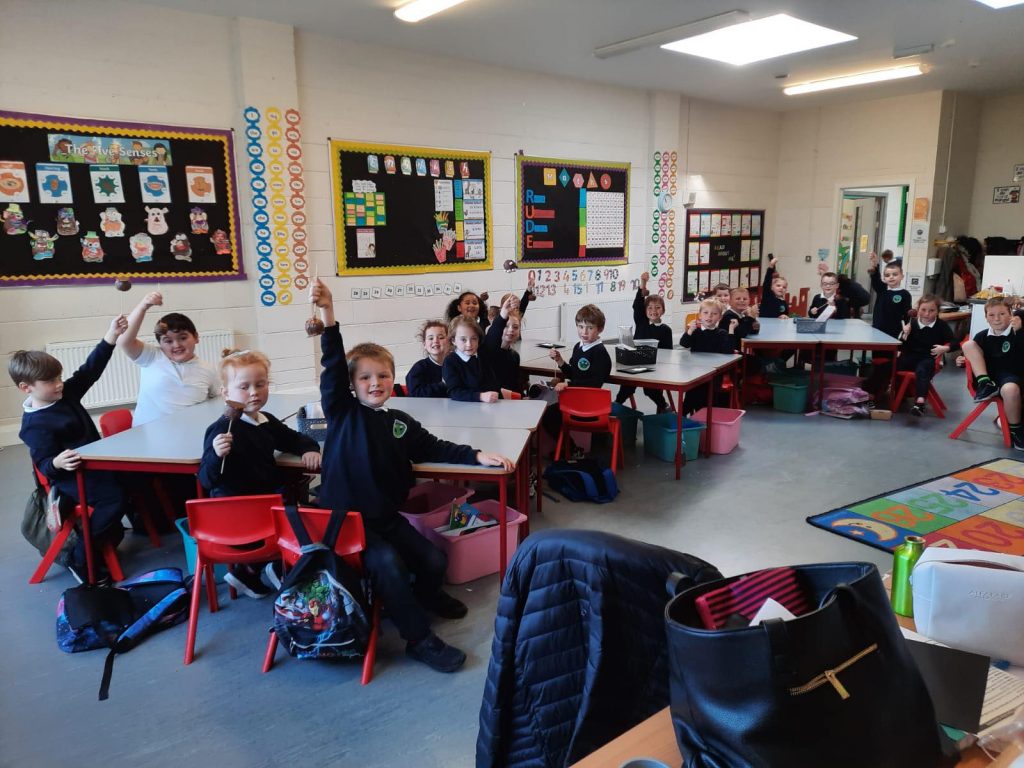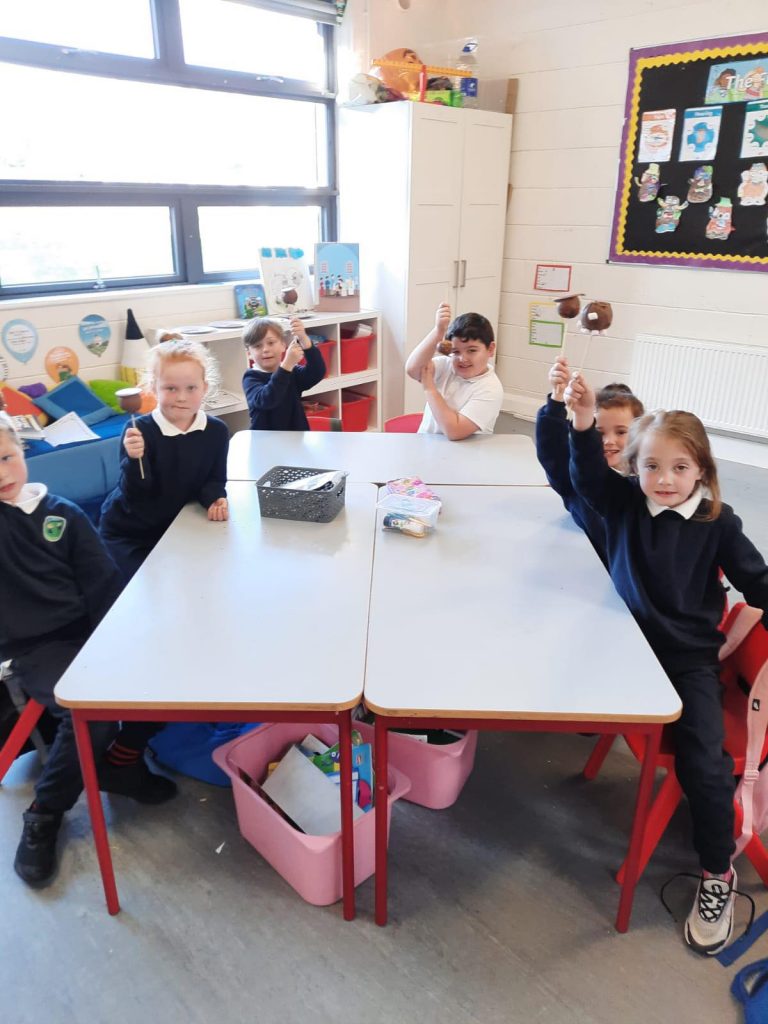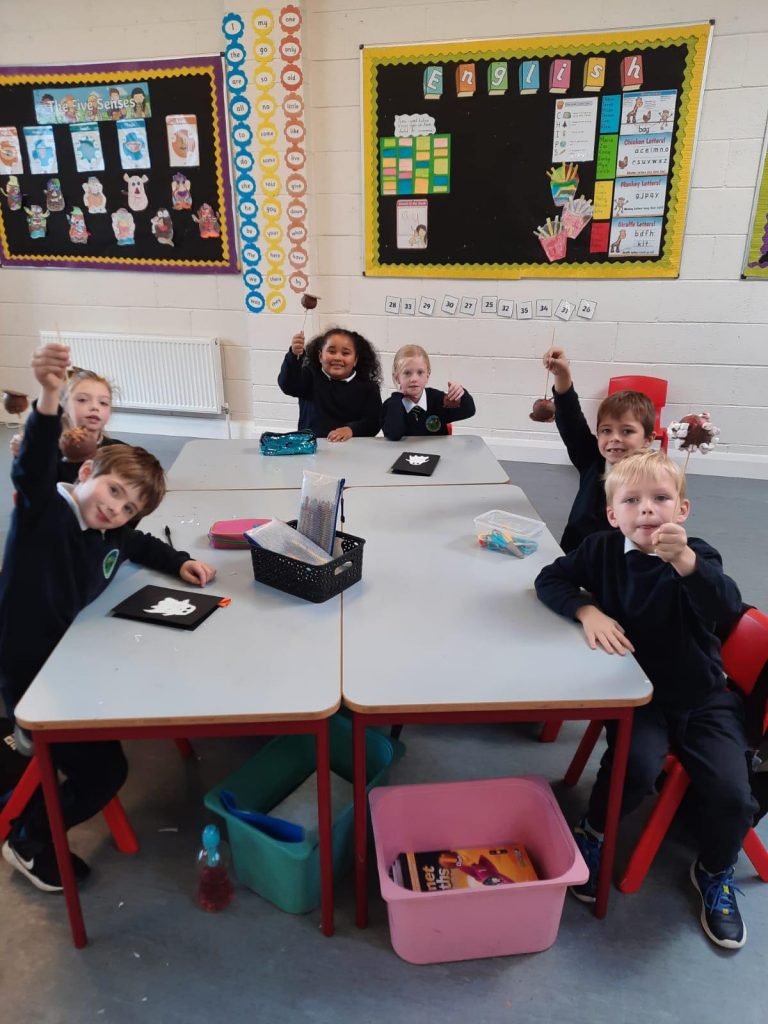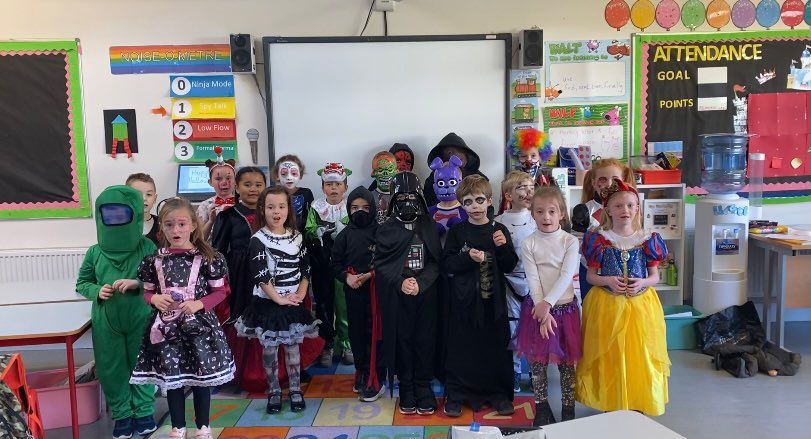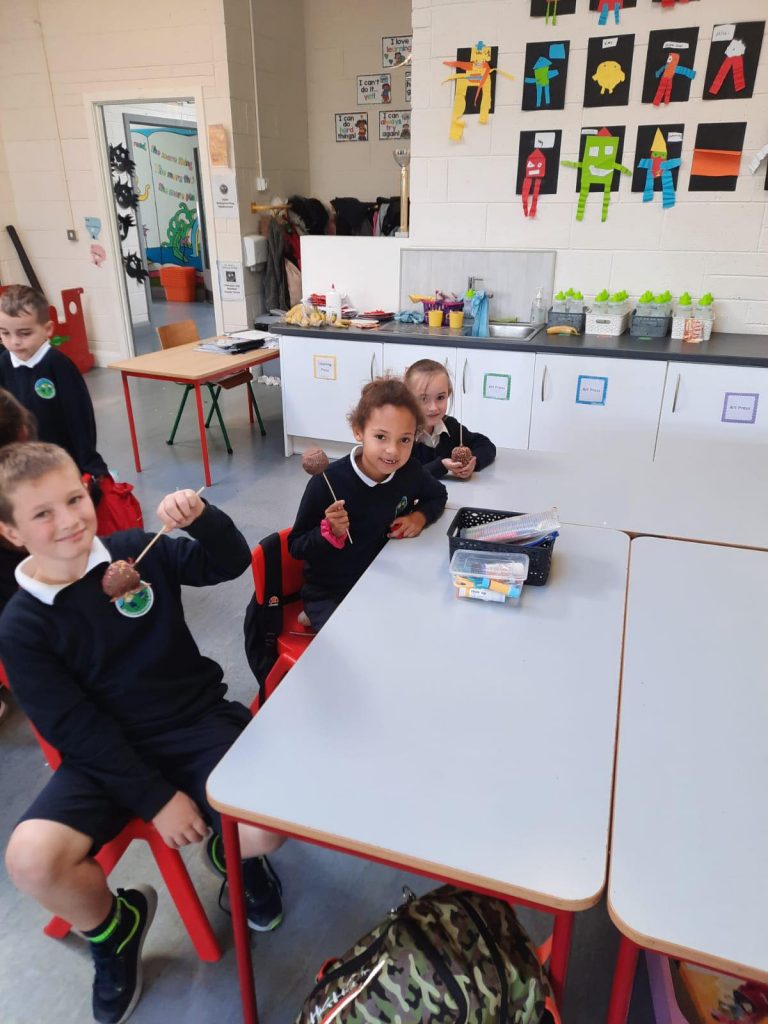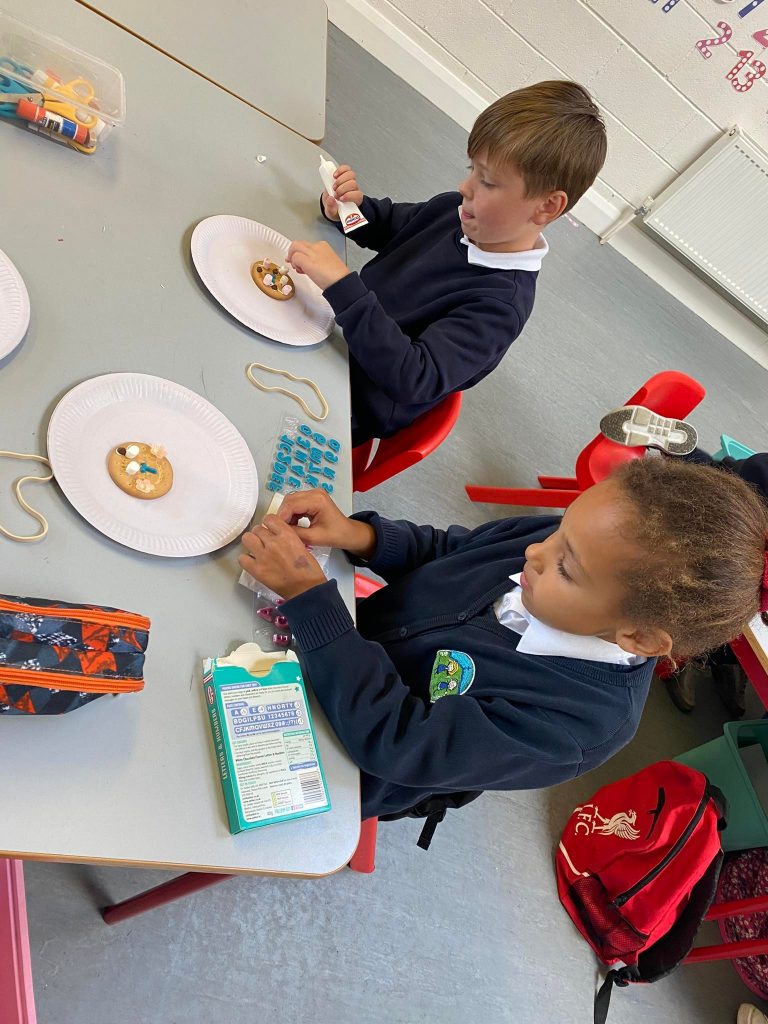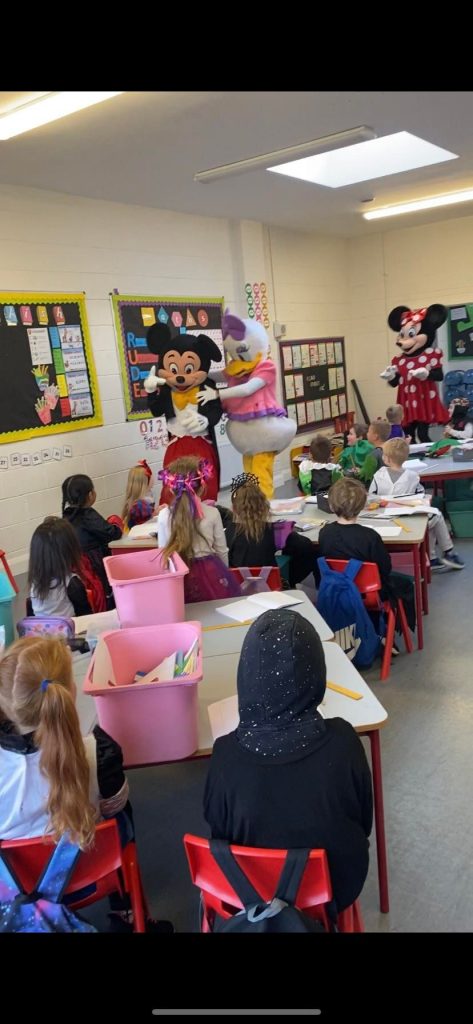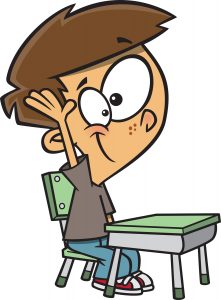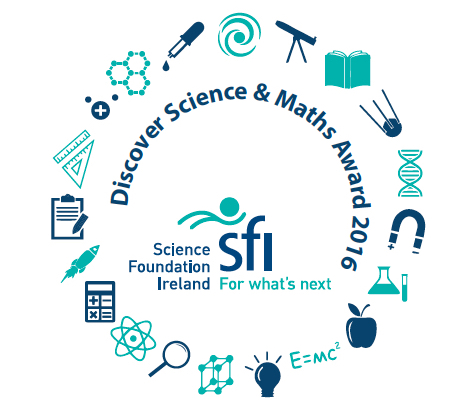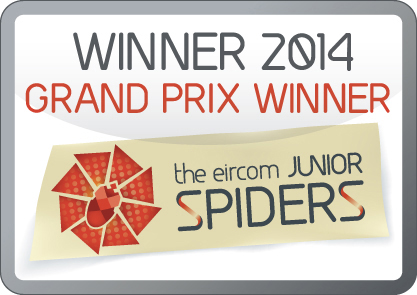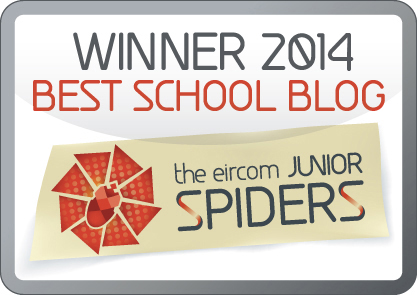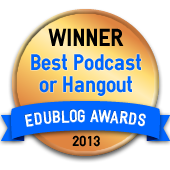We had great fun celebrating Science Week this year! Science is one of our favourite subjects and we love taking part in STEM activities!
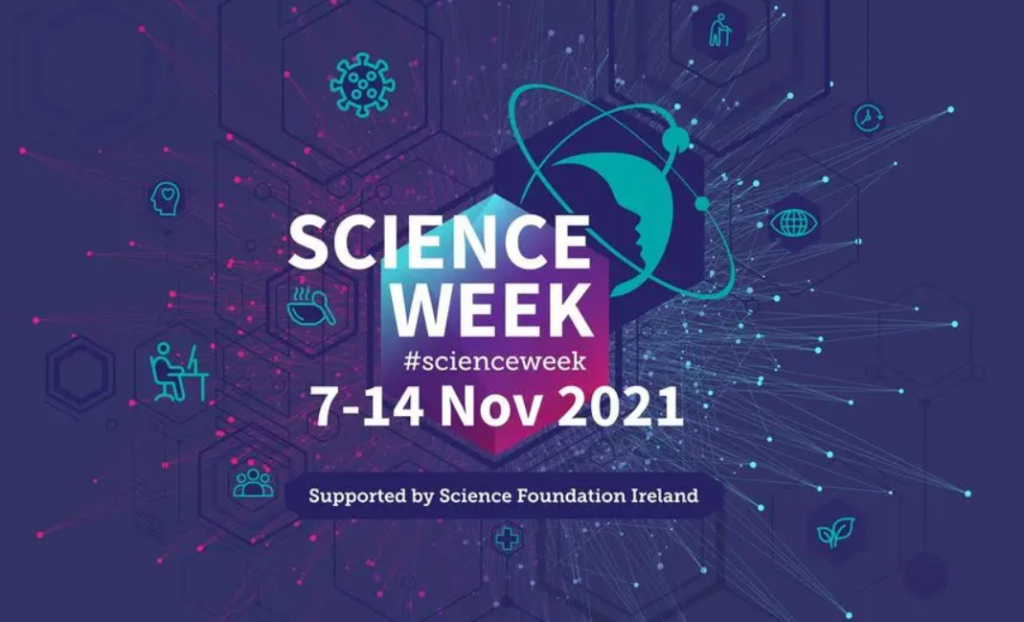
We loved taking part in STEM for Fun in the hall this year and had the chance to try lots of different activities including creating paper planes and racing them, programming Bee Bots, building a circle using Pringles, building the tallest tower using paper and using Lego to create a ‘vehicle of the future’.
In our classroom we discussed ideas that we hope Science will help us answer in the future and had a look at the ‘Creating our Future’ website https://creatingourfuture.ie/. These ideas included making sure there’s enough food in the world for everyone to eat, the possibility of teleporting, how robots might help us with homework and whether holidays to space will be a possibility for everyone. We discussed ideas in history that might have seemed impossible without Science such as electric cars, flying aeroplanes and mobile phones.
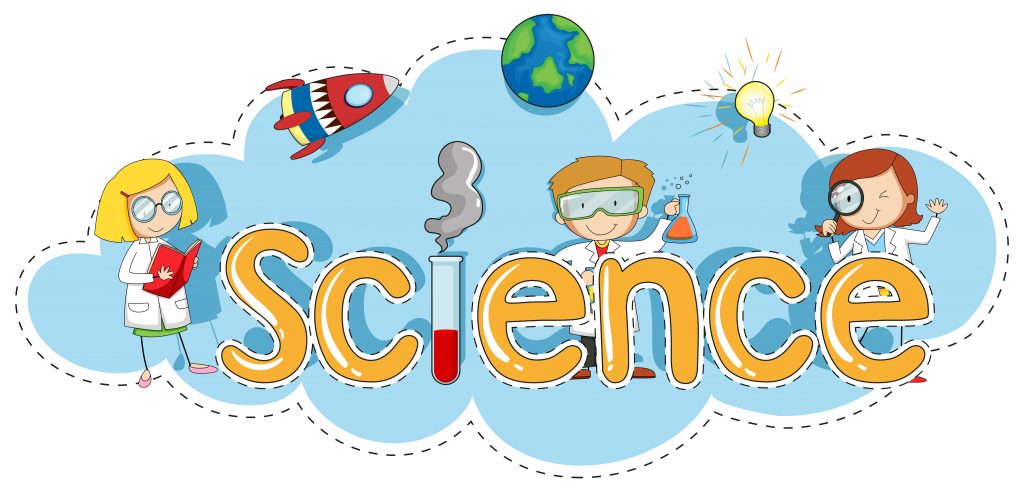
We watched coverage of COP 26 and were most impressed by Sir David Attenborough’s address to the delegates. We discussed the devastating effects of climate change on the world and what we must do to reverse these changes.
We love taking part in Design and Make activities and were delighted to use the PDST and Dr. Niamh Shaw and the Ark’s resource about ‘Treasuring our Earth’. We began by reading a short story about a bird and 3 eggs at risk from a forest fire. We remembered the awful forest fires we had seen on the news from around the world and knew the bird and her eggs would be in trouble if they didn’t move quickly.
We began to design a zipline that they could use to safely move from dangerous trees/ branches to safer ones. We looked at some videos of ziplines online and even found out that some children in the world travel to school via ziplines! We discussed the fact that angle of the zipline is important and will probably be in shape of an acute angle. Michael pointed out that it shouldn’t be too steep as the nest and the bird want to travel safely to a new branch. We used some elastic string (used to wrap presents) as the zipline, as we felt it was the right texture to allow the nest and eggs to move along smoothly. We created the eggs and nest using cardboard.
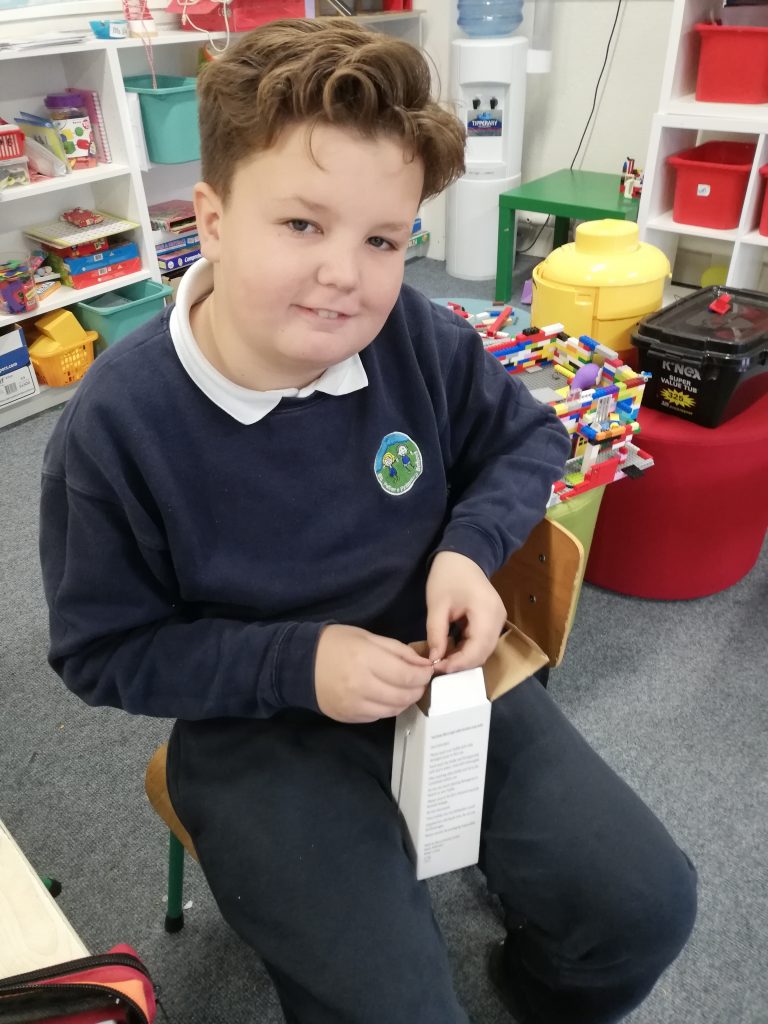
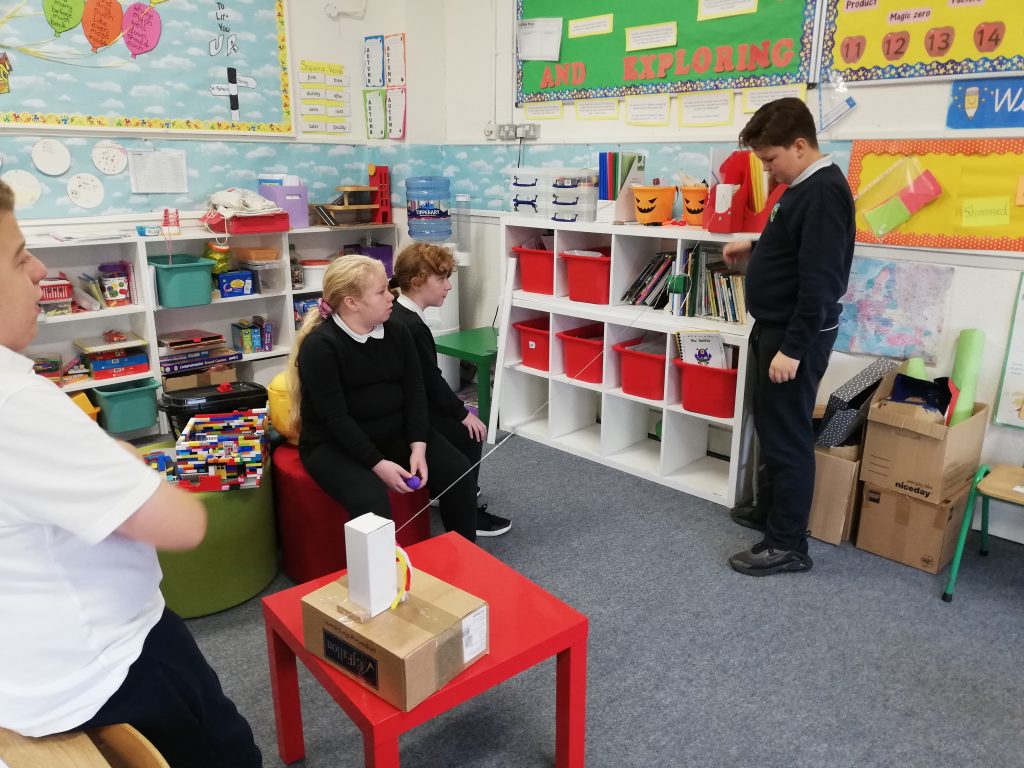
Angles were important! 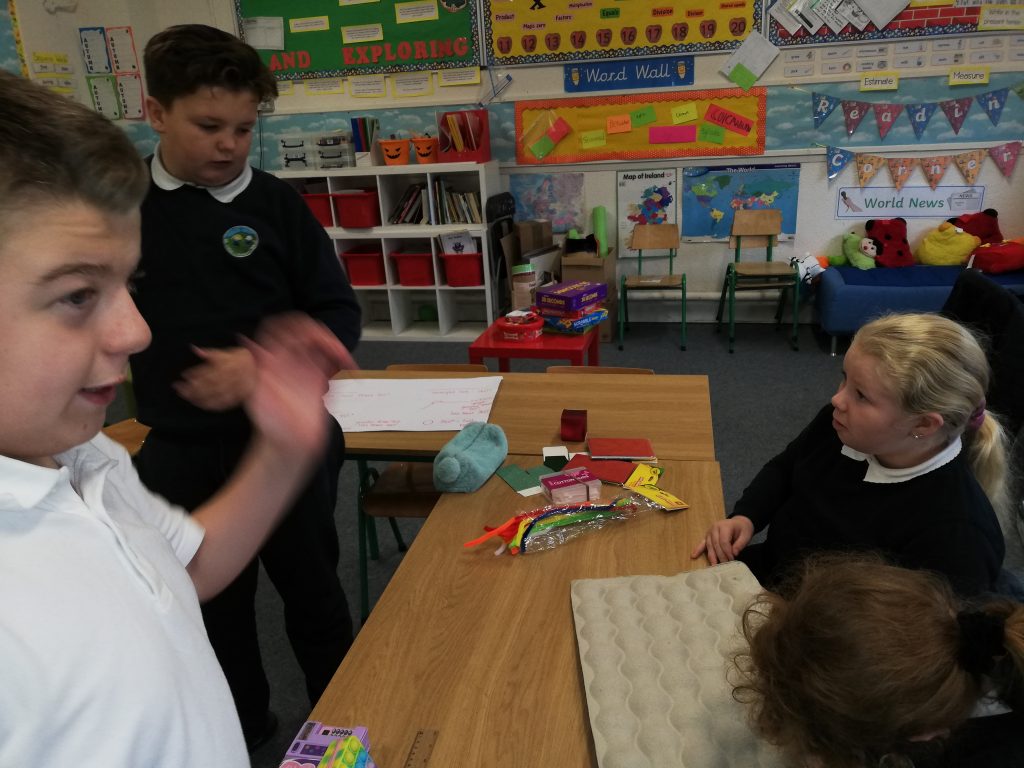
Discussing initial plans. 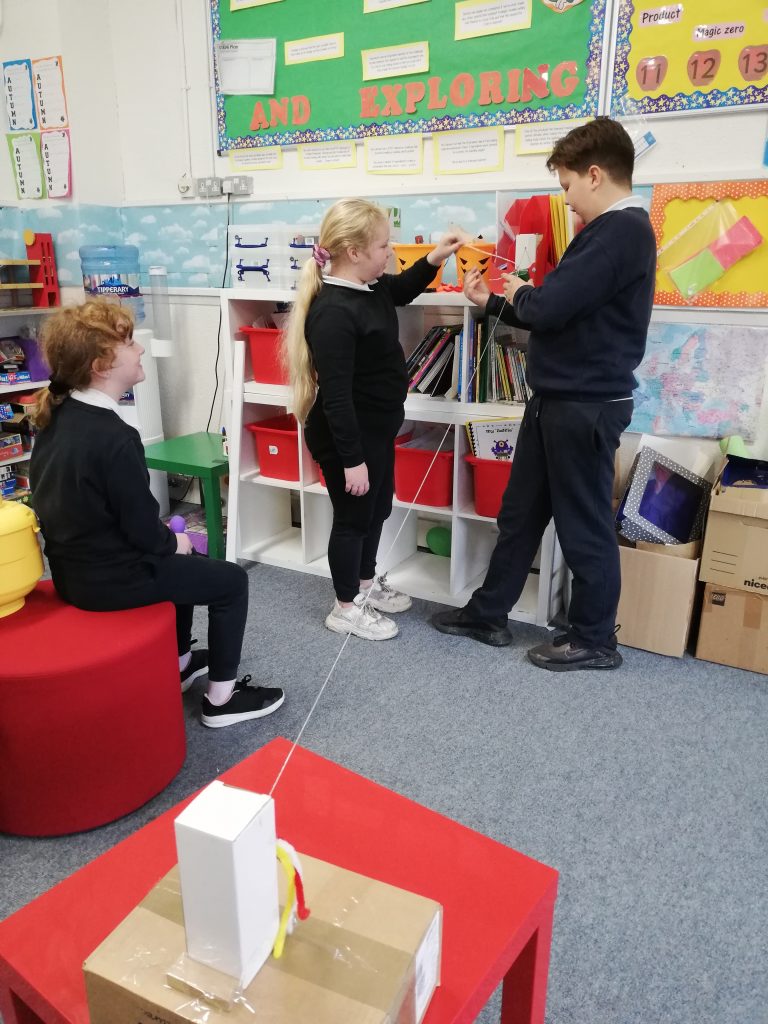
The height of the zipline needed to be adjusted a few times. 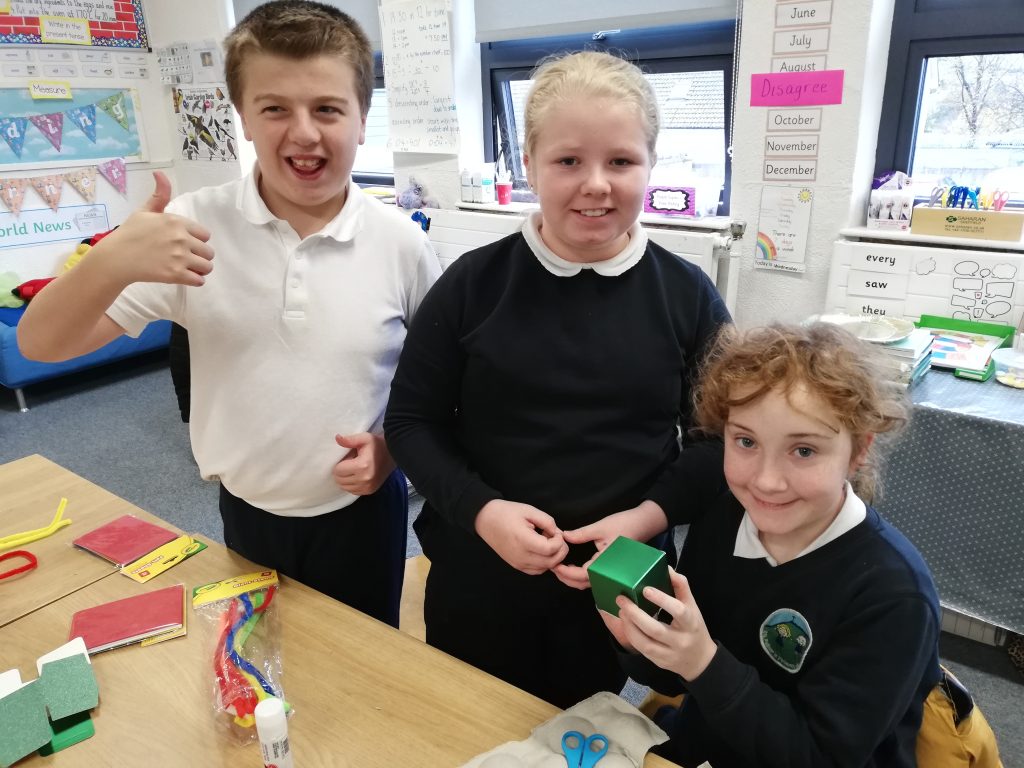
Creating the nest and eggs!
We tried lots of different materials to carry the nest and eggs safely from the ‘top branch’ to the lower ‘safer branch’, including wool, pipe cleaners and string. None of these materials facilitated a smooth journey. Liz suggested that we try a paper clip and we were delighted when this allowed the precious eggs to travel safely. We had made a brake system out of a cotton bud but luckily the angle of our zipline meant we didn’t need to use it. Luke made sure that the eggs ‘landed’ safely by adding a ‘cushion’ of pipe cleaners to the end point of the zipline.
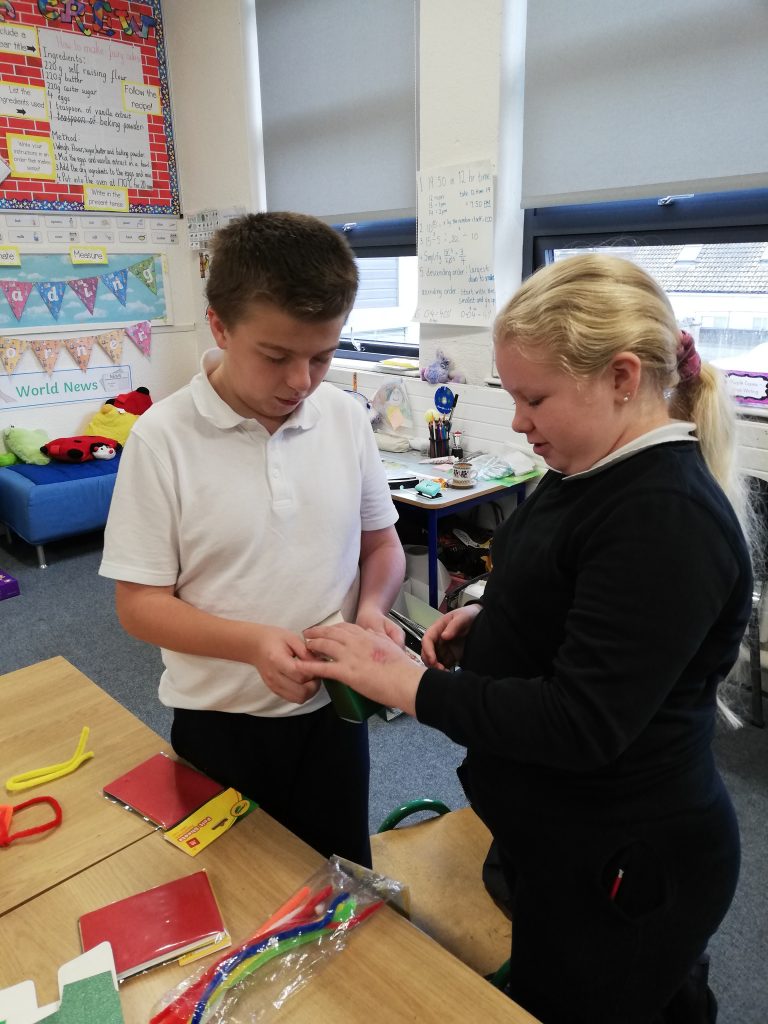
We wanted the eggs to travel safely… 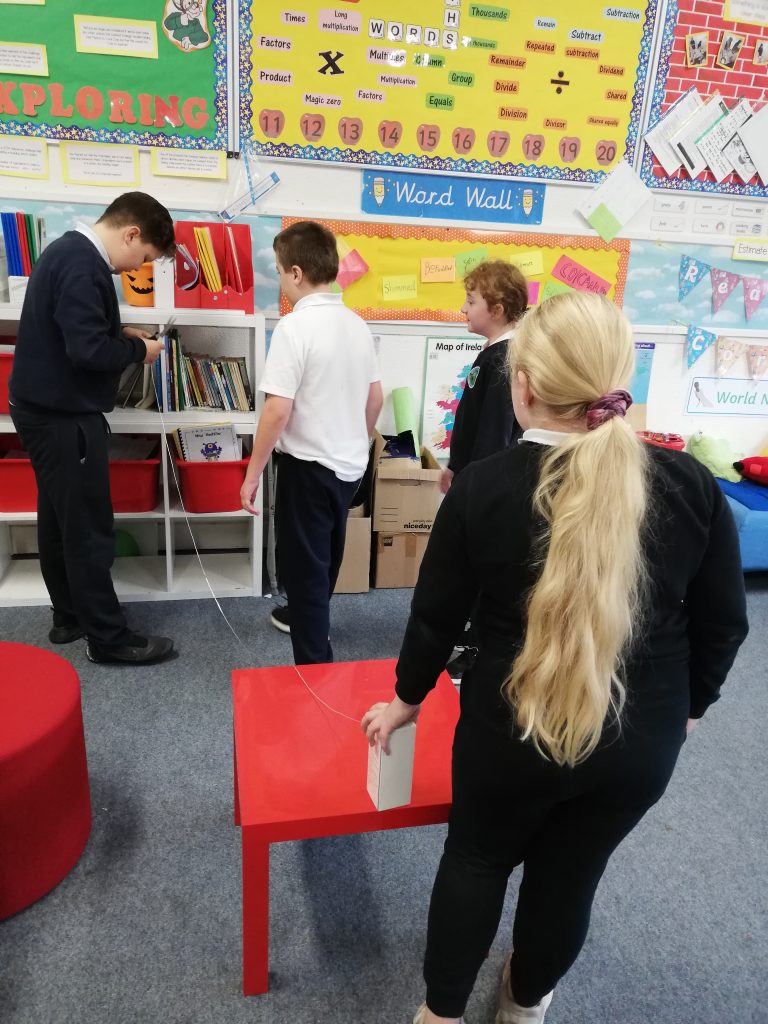
The zipline needed to be strong and smooth… 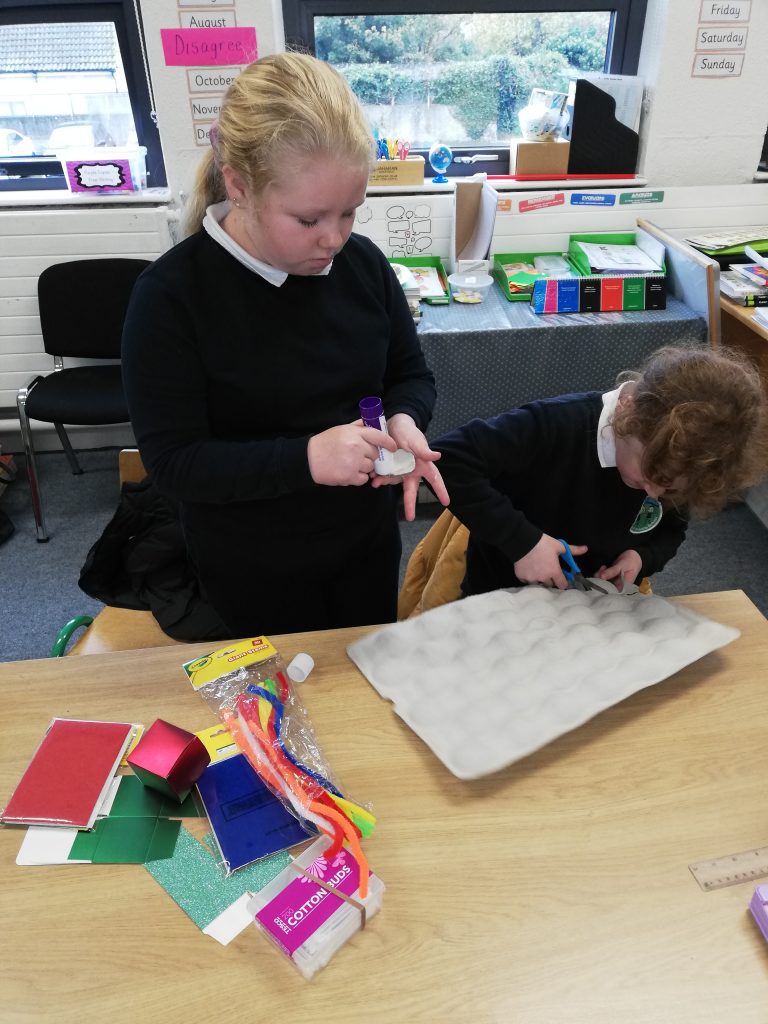
We used cardboard eggs first…we might be brave enough to try real ones now that we know our design was solid! 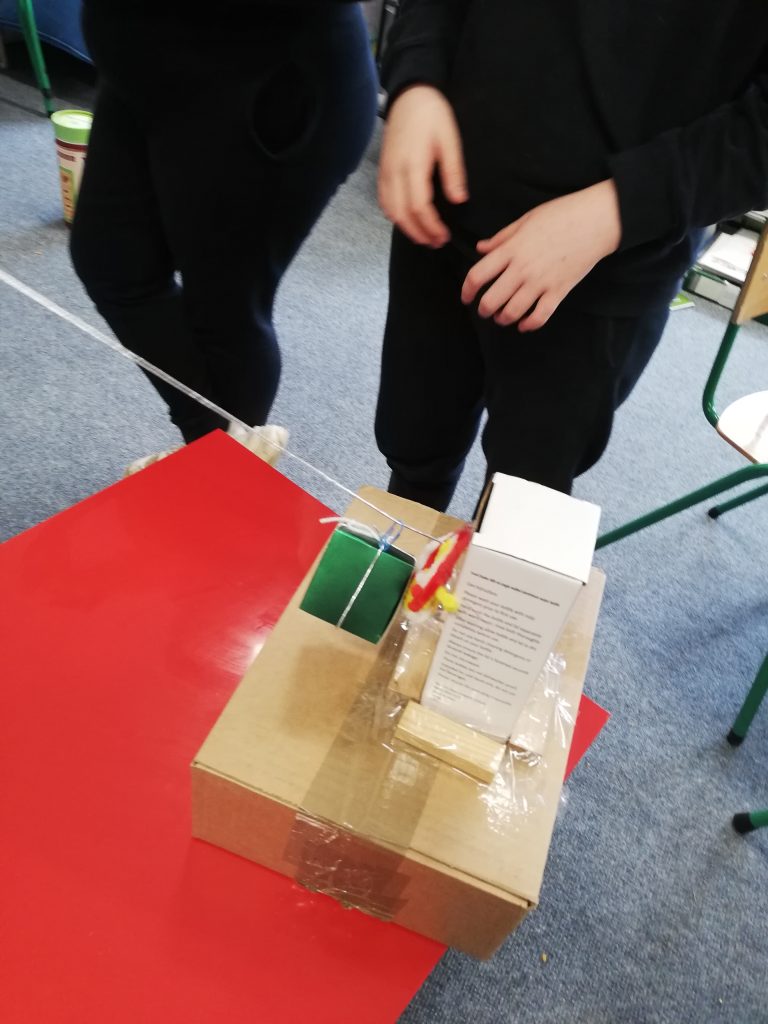
A safe landing pad. 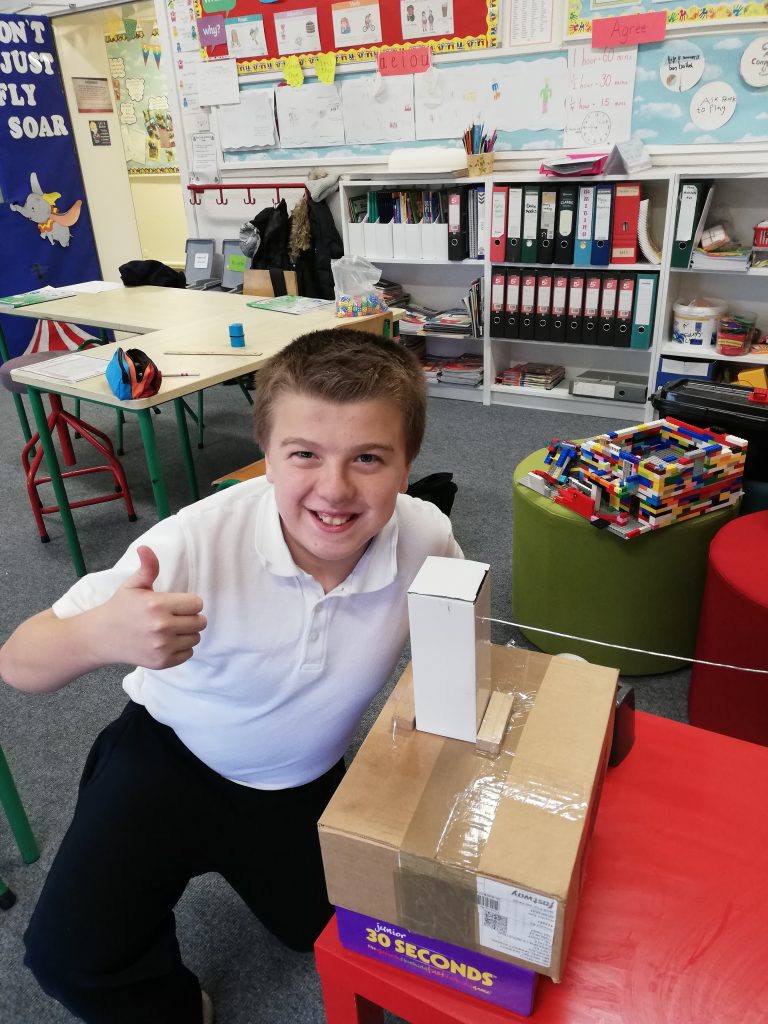
Huge thanks to Luke for creating a safe and solid space for the nest and eggs to land.
This design and make activity included lots of science, maths and engineering as well as technology which helped us to decided on the design of our zipline. A great chance for us to practise lots of different skills!
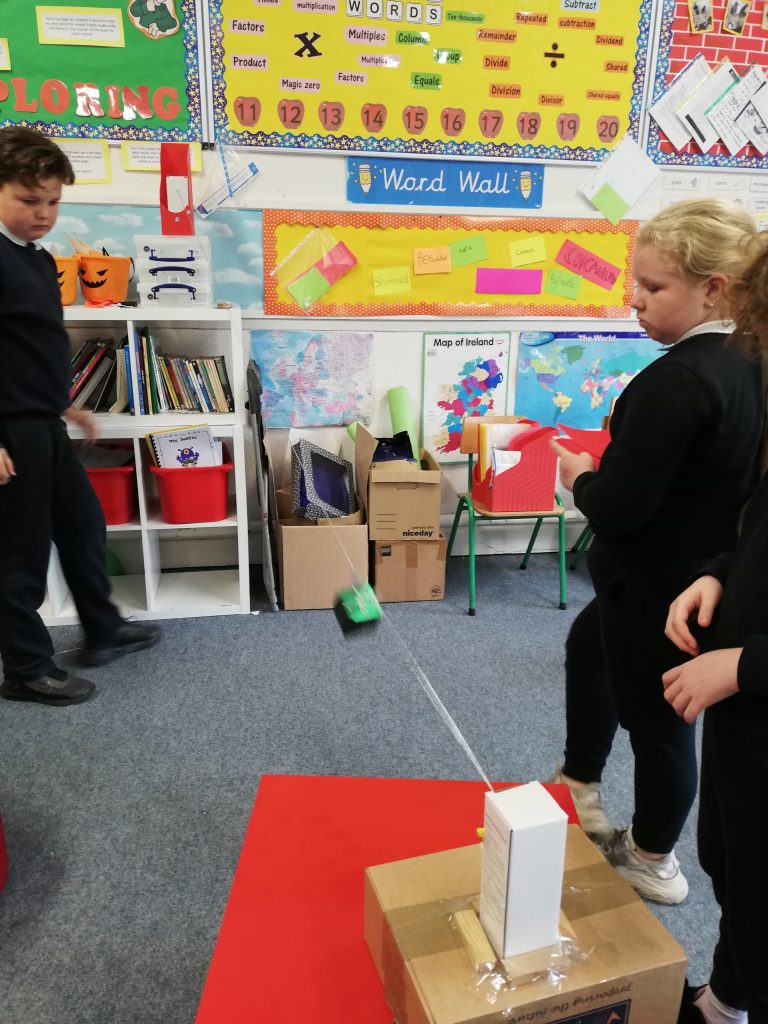
Action! 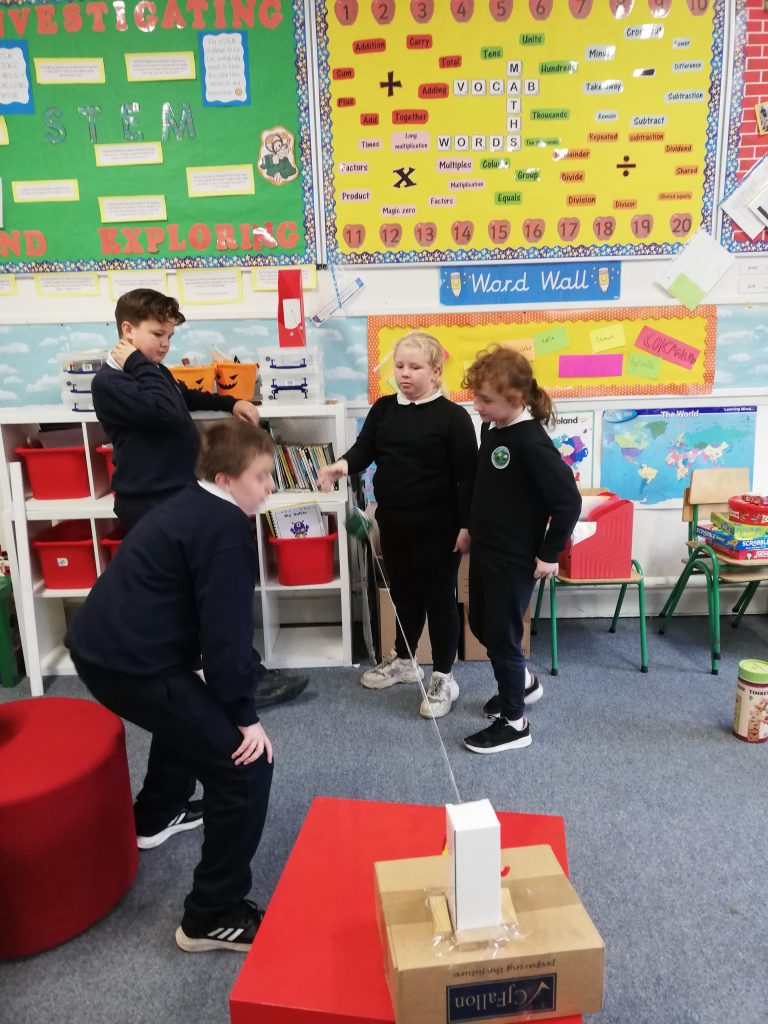
Success!

